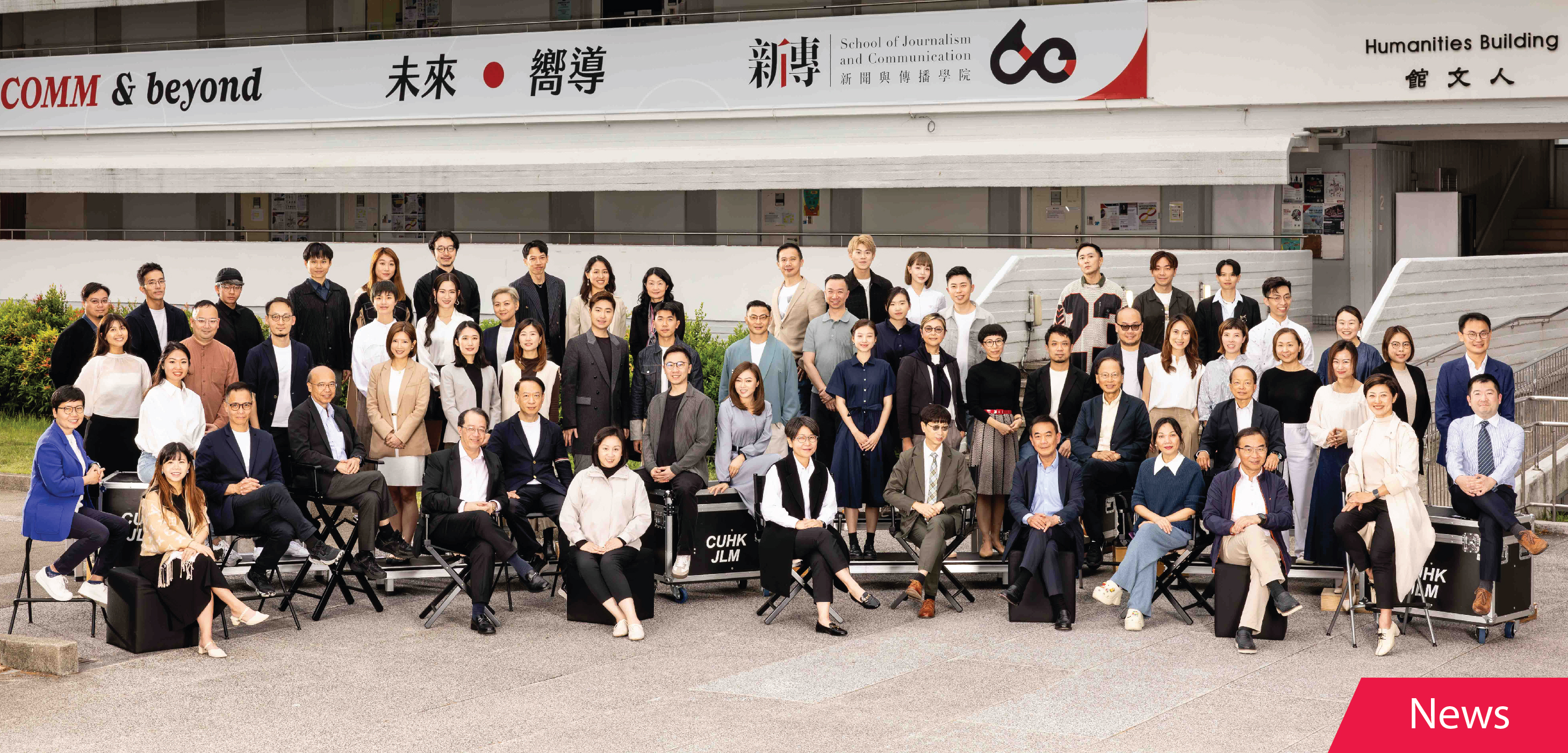CUHKJLM 60More
BeCOMM and Beyond

It is often said that “Education is what remains after one has forgotten what one has learned in school.”
At CUHK, courses in our School are designated with the letters COMM. All our graduates have completed communication courses, each with varying focuses on theory and practice. Over time, some inspirations may become irrelevant, while certain innovations get outdated. Yet our core beliefs and values endure through generations. Spanning six decades, our alumni have consistently exemplified professionalism and a commitment to excellence in the field of communication and beyond.
This is why we embrace “BeCOMM and Beyond” as our motto in celebration of our 60th anniversary, serving as a heartfelt reminder of our mission and vision to educate future generations.
beCOMM
【Technology as a Medium for Communication】
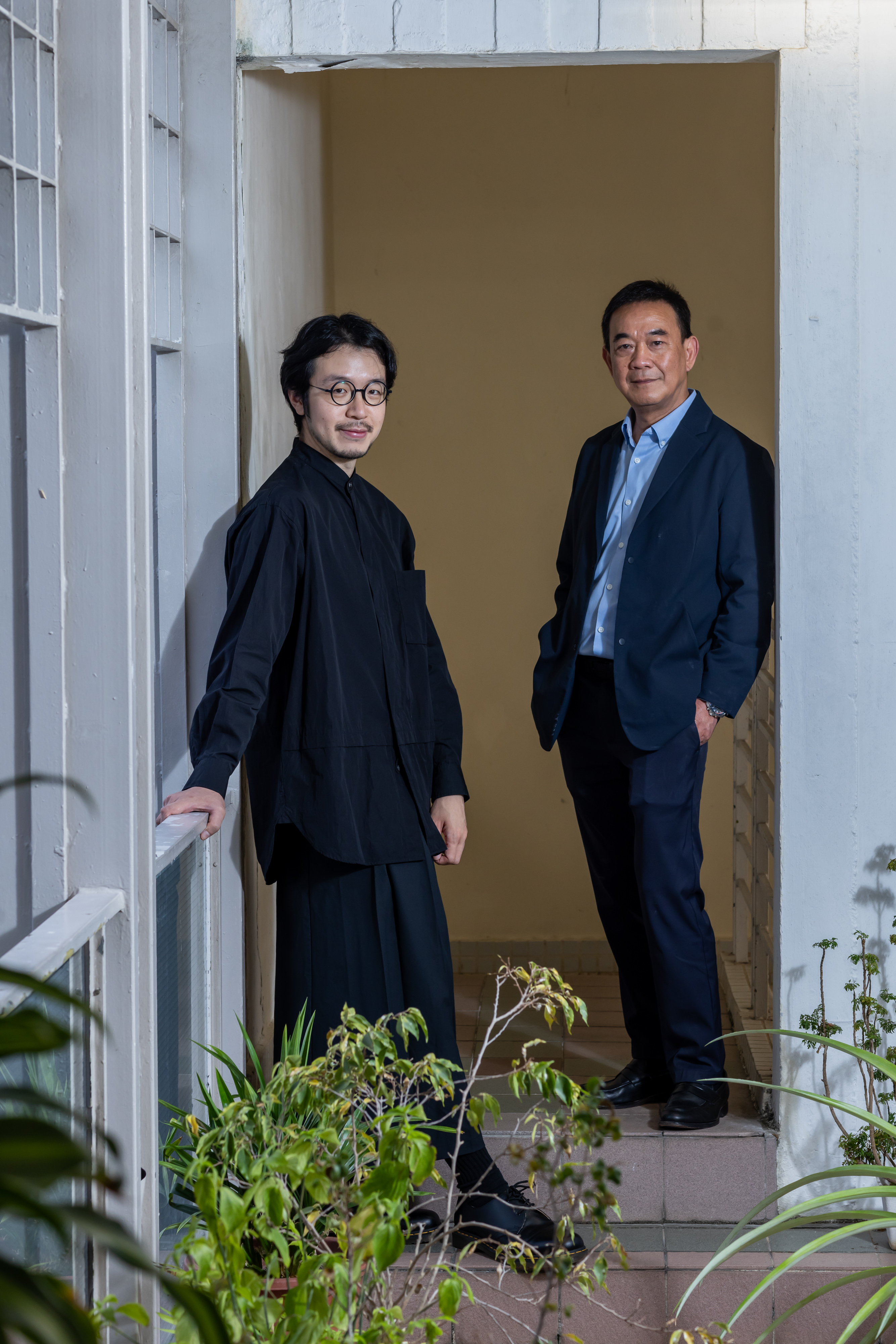
More
Imagine walking into an exhibition about Hong Kong’s fisheries industry and being greeted not by static display panels, but by five fish that serve as your personal guides through the history of local fisheries. With a simple swipe of your finger across a screen, you gain X-ray vision to explore the internal anatomy of different fish species. You can even step onto a replica fishing raft and compete in games that challenge you to sort farmed fish by category, truly experiencing a fisherman’s daily routine. This innovative project, designed by Siu Yat-long Ron’s team, was a resounding success. “The clients and our team thoroughly enjoyed the process, and visitors of all ages responded wonderfully.”
We live in a new era where the impossible has become routine through digital innovation. Yet rewind to 2015, when interactive media production remained a niche field. Siu chuckles when recalling how the general public understood interactivity as merely “waving your hands and feet around in shopping malls.” Together with friends, he founded a company specializing in museum and exhibition design, leveraging multimedia and interactive elements through multi-screen projection, motion-sensing installations, virtual reality (VR) technology, and animation design. But why does interactivity matter? “Interactive design uses various cues to capture audience attention, requiring active participation to complete the experience. Through this engagement, the messages become uniquely memorable and impactful.”
Technology’s applications span far and wide. Loh Chan Stephen, a respected veteran in Hong Kong journalism, has boldly pivoted to AI and big data analysis. In 2014, as social media and online forums surged and the media landscape transformed, he anticipated the explosive growth of online public opinion monitoring. After five years of system development, he launched a public relations company in 2019 that uses big data to analyze public sentiment across 1,500 websites, seven major forums, and 7,000 Facebook pages. The company produces public opinion reports and develops crisis management strategies for businesses and institutions. “We process up to two million related reports and comments daily. Human eyes simply can’t keep pace, nor can they necessarily spot emerging risks in real-time. Without big data, analyzing trends and understanding specific negative public perceptions becomes nearly impossible.”
Journalism and communication students learn that news work must uphold principles of truth-seeking, accuracy, fairness, and neutrality. Today, Loh applies these same standards to big data, faithfully reflecting public opinion. He repeatedly emphasizes that the industry must “evolve with the times.” “AI dramatically reduces your workload, freeing up time for careful refinement or developing more creative approaches to meet future challenges.”
Siu studied journalism and communication because “people seem inherently connected to communication throughout their lives.” Today, his work similarly focuses on helping clients effectively reach their audiences. While technology advances at lightning speed, he stresses that his company doesn’t chase innovation for its own sake. Multimedia and technology simply provide additional tools for expression—the content remains paramount. “Our role is determining the most befitting approach for conveying each key message.”
Profiles:
Loh Chan Stephen graduated with a Bachelor’s degree in Journalism and Communication from The Chinese University of Hong Kong in 1979. He has served in management positions at various news media organizations including Now News, Hong Kong Economic Journal, and Hong Kong Digital Broadcasting. He is currently the Chief Executive Officer of ASI Analytics & Media Limited.
Siu Yat-long Ron graduated with a Bachelor’s degree from the School of Journalism and Communication at The Chinese University of Hong Kong in 2012. In 2015, he co-founded cross-media design company ioio studio with friends and currently serves as Project Producer.
【Dreams Made Real】

More
“I’ll do anything as long as it’s advertising!” That’s Ng Chun-ning Jay, fist raised in determination. His love affair with advertising began during a high school visit to an alumnus’s agency, where he made a life-changing discovery: “There are actually jobs where you don’t have to wear a suit and you can play video games at work.” It was the beginning of his fall down the rabbit hole.
While his classmates were online watching movies and variety shows, Ng was collecting advertisements from around the world. A decade into his career, he still gets animated discussing the craft, particularly when talking about his mentor Tsang Kam-ching’s “textbook-perfect campaigns.” “He’s been incredibly innovative,” Ng explains. “In an industry dominated by international agencies, he partnered with fellow Hong Kong creatives to start his own agency—it was the beginning of a new era.”
“Back in the TV era, when ads could spark conversations and get people talking—that was pure joy,” says Tsang. He admits his entry into advertising was accidental, initially just a way to “make more money to fund film school.” Those cinema dreams quickly faded as advertising proved irresistibly engaging. Four decades later, he’s still in the game because advertising is “just so much fun.” He explains: “Copywriting lets me flex my language skills, and like most journalism grads, I have this creative itch. When millions of people see your work, it’s incredibly satisfying.”
Ad people tend to be mischievous. When asked about his journalism school memories, Tsang grins: “I had a classmate who would sneak over and move the classroom clock forward to trick the professor into dismissing us early. We thought we were so clever.” Then, more thoughtfully: “One professor taught us the golden rule of news: ‘Dog bites man isn’t news, but man bites dog is.’ I was too young to get it then, but it eventually shaped how I approach advertising—never do what’s expected. Do something new, weird, seemingly illogical.” He laughs as he describes journalism majors as “brilliant idiots”—smart and capable, but choosing not to study something with guaranteed job security. “It’s actually quite romantic when you think about it. We’re all chasing truth, trying to do meaningful work, hoping to change the world. Most people think we’re just dreamers, but we’re actually pragmatic about making those dreams reality.”
Ng perfectly embodies this “pragmatic dreaming.” Fresh out of university, he cold-called his way into an agency, starting as an intern and eventually launching his own company. The pressure is intense, but the satisfaction is worth it. “If someone told me to switch careers tomorrow, I honestly wouldn’t know what else could make me this happy.” He describes advertising creativity as “having this life but no afterlife—every idea gets just one shot,” which keeps things endlessly fresh, much like his agency’s name: SO DON’T BORE. The work brings him genuine happiness, echoing his own copy: “Happiness is becoming who you want to be.” He reflects: “Deep down, I want to use advertising to express ideas and emotions, maybe even change the world around me a little. It might sound naive since advertising is ultimately about commerce, but if I could pull that off, I’d be thrilled.”
Advertising can be deeply personal while carrying broader cultural weight. As Tsang puts it, a single ad might have limited impact, but the advertising of an era can shift entire social perspectives. “Take the Hong Kong spirit, for example. Over time, a body of work can help define Hong Kong’s cultural identity and sense of self. There’s something pretty powerful about that.”
Profiles:
Tsang Kam-ching graduated with a Bachelor’s degree in Journalism and Communication from The Chinese University of Hong Kong in 1986. He established Chan Tsang Wong Chu & Mee Advertising Firm in 2001 and is currently a partner at advertising agency The Bees Group and Associate Professor of Practice at the School of Design, The Hong Kong Polytechnic University.
Ng Chun-ning Jay graduated with a Bachelor’s degree from the School of Journalism and Communication at The Chinese University of Hong Kong in 2014. He joined advertising agency Secret Tour the same year and established SO DON’T BORE in 2021, serving as Creative Director.
【The Storytellers】
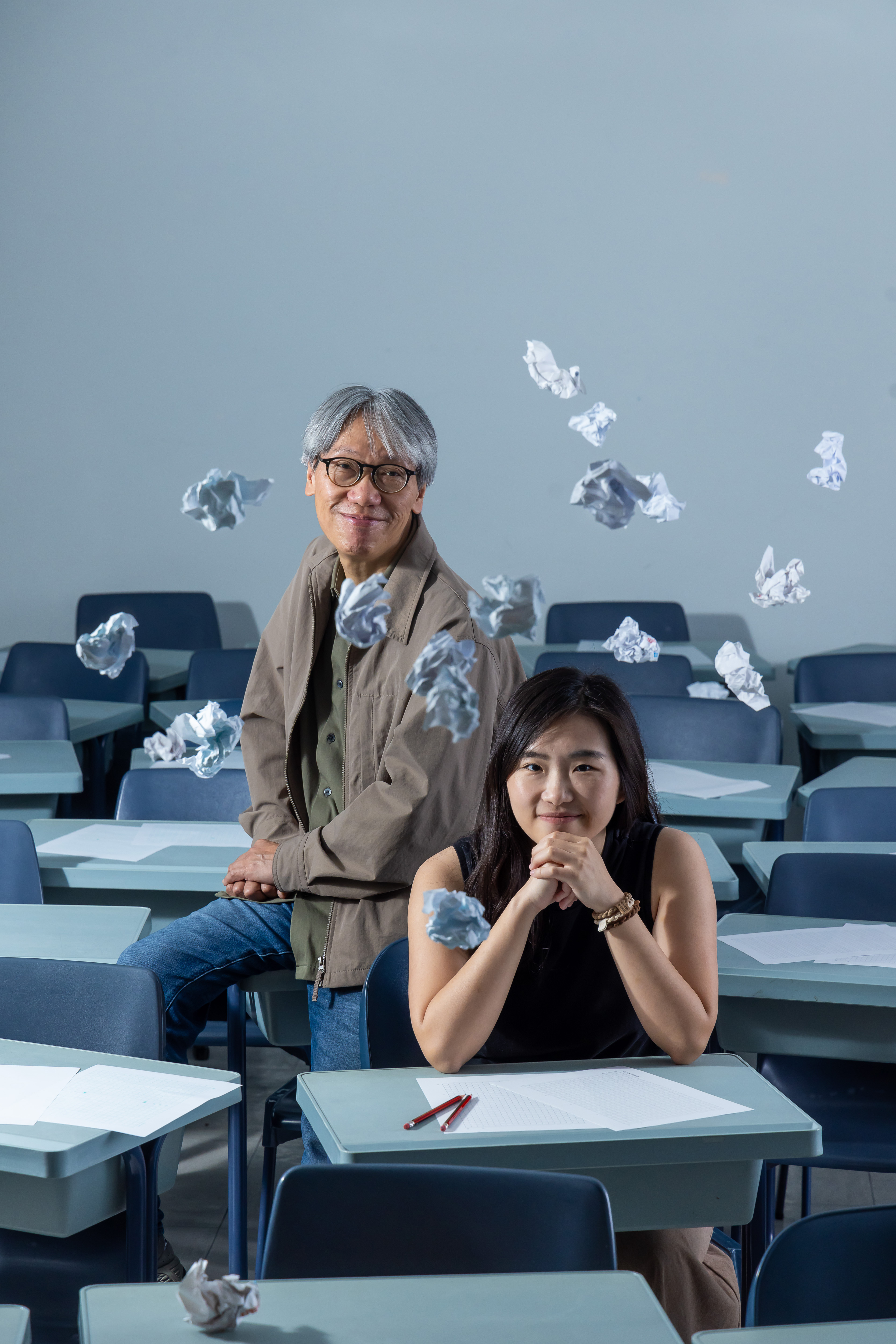
More
During secondary school, Mary Wong Yuen-lam went through a period of deep emotional distress, feeling unwilling to confront reality. She lost herself in films—local and foreign productions that gradually healed her wounds. “That’s why I really wanted to get into creative work, to touch other people’s lives the way those films touched mine.”
Her dream was to become a screenwriter. At the School of Journalism and Communication, she threw herself into countless shootings, brainstorming sessions, and editing projects with her classmates. It was a period of rapid growth. She also assisted senior students with projects like Fresh Wave, building her professional network through collaborations. Today, she works as a freelance screenwriter and assistant film director, supporting her artistic ambitions through commercial work—directing advertisements and writing for TV programs. But she’s candid about the industry’s brutal realities. The anxiety and constant sense of crisis can be overwhelming. “Most creators in my generation are chasing one of two goals: either winning awards and getting into film festivals, or making money for their bosses. If you can’t do either, you’re worthless. There won’t be another project for you.”
Chan Hing-ka, a veteran of the industry, sees how unfair the current environment has become. He entered the business during Hong Kong cinema’s golden age, when opportunity could strike anywhere—even in a university restroom. That’s where a senior student approached him during his third year of journalism school, offering him part-time work writing radio dramas. Word spread quickly, and screenwriting jobs kept coming. “The film industry was booming then. The 1980s were hungry for scripts.” After over forty years in the business and countless films to his name, he still calls scriptwriting his greatest passion. “Creation brings me tremendous joy. It’s like stepping outside of myself and having complete control over the world I’m building.”
Every generation of creators faces unique challenges, but the sting of disappointment remains constant. Wong admits there are times when she feels completely defeated, even considering leaving the industry altogether. The pay makes it nearly impossible to support a family, and whether your work ever sees the light of day depends on perfect timing and countless factors beyond your control. “As a screenwriter, there’s so little you can actually influence. Sometimes I wonder why I keep fighting.” But then she remembers her younger self, and something keeps her going. “I’ve been watching Hong Kong films my whole life. There’s something magical about this city, and I want to capture the Hong Kong I see through my own eyes.”
Chan has his own stories of projects that didn’t quite land as expected. He’s particularly proud of his work on Jiang Hu ~”The Triad Zone”, though the film received a lukewarm reception in Hong Kong. “I could see the audience enjoying themselves, laughing at all the right moments. But the box office numbers just weren’t there.” What gave him peace was something director Johnnie To told him: “Good films survive.”
These days, Chan teaches film screenwriting at university and produces films for emerging directors, hoping to nurture the next generation. It’s ironic, he admits with a laugh—he was hardly a model student himself, frequently skipping classes and nearly failing to graduate. But he vividly remembers something one of his teachers said: university isn’t job training. It’s not about learning technical skills, but about understanding journalistic principles and developing strong convictions. When you become a decision-maker, these values will guide you in leading media organizations forward. Those words have stayed with him throughout his career, and now he passes on similar wisdom to his students. He encourages them to think with depth and ambition. “See yourself as a writer, not just someone serving directors. When you master the craft of writing, you might even get the chance to direct. You’re the one with something to say—make sure you’re seeing the world with the perspective it deserves.”
Profiles:
Chan Hing-ka graduated with a bachelor’s degree from the School of Journalism and Communication at The Chinese University of Hong Kong in 1981. He won the Hong Kong Film Award for Best Screenplay for Heart to hearts and Beast Cops. He currently works as a film producer, director, and screenwriter, while teaching “Script Writing and Screenplay” at the School of Journalism and Communication.
Mary Wong Yuen-lam graduated with a bachelor’s degree from the School of Journalism and Communication at The Chinese University of Hong Kong in 2018. She currently works as a freelance screenwriter, with works including We Got Game and Get on a Flat.
【A Shared Cinematic Dream】

More
“Cheng is my benefactor—she’s the one who brought me into the industry,” says TSANG Hing Weng Eric, director of Hong Kong Family. His debut film was produced by veteran film producer CHENG Lai Chun Patricia, a connection that began when Tsang was fresh out of university with filmmaking ambitions but no industry contacts. After boldly applying for the Film Development Fund’s “First Feature Film Initiative,” his journalism school mentors introduced him to Cheng, an alumna and seasoned producer. “Cheng agreed to help produce my film without even meeting me first,” Tsang recalls. “I believe it was purely out of loyalty to our shared alma mater.”
Tsang describes working with Cheng as “incredibly rewarding.” He admires her generous spirit despite her vastly superior experience. “At crucial moments, she would always say: ‘You make the final decision—this is your project, something you fought for and won,'” he explains. The mentorship went far beyond expectations. “From initial script revisions to every detail that followed, she was involved in everything. The time she devoted was extraordinary.”
For her part, Cheng was already considering retirement when the project came along. “I was ready to step back before Hong Kong Family, but when it’s helping a fellow alumnus, how could I say no?” she laughs. With over forty years in the film industry since graduation, she wasn’t disappointed by her protégé. “He adapted remarkably quickly for someone new to the industry,” she notes. “He got up to speed fast and delivered an impressive debut. As a first-time director, I’d give him top marks.”
A veteran producer and an emerging director, both journalism school graduates pursuing a shared passion for cinema. Tsang originally chose journalism hoping to “learn how to express ideas through different media while understanding communication’s impact on people and society.” Film emerged as his calling during undergraduate studies. “Cinema is intimate in a way—it reaches emotions buried deep inside you that nobody else knows about. It combines text, sound, and imagery into one art form. That complexity fascinated me.”
For Cheng, film serves a deeper cultural purpose. “Movies capture the history of their time and place—the values, fashion, speech patterns, everything. Without film, we’d lose a crucial piece of our visual historical record.” Reflecting on her career path, she feels grateful that journalism school opened this door for her. “Then I ended up spending my entire life making movies. It’s been an incredible gift.”
Her mentoring continues with plans to produce We Are Born Good, the debut feature from another alumnus, YEUNG Leung Chuen. “Whether it’s giving back to the journalism programme or the film industry, I’m always happy to help.”
Profiles:
CHENG Lai Chun Patricia graduated with a Bachelor’s degree in Journalism and Communication from The Chinese University of Hong Kong in 1981 and began her career in the film industry. She has served as producer for films including Tokyo Raiders, Summer Holiday, 20 30 40, Run Papa Run, Murmur of the Hearts, Love Education, and Hong Kong Family.
TSANG Hing Weng Eric graduated with a Bachelor’s degree from the School of Journalism and Communication at The Chinese University of Hong Kong in 2012, and completed his Master of Arts in Creative Media at City University of Hong Kong in 2024. He is the director of the film Hong Kong Family and currently serves as Programme Director of the Bachelor of Fine Arts (Honours) in Acting for Global Screen programme at Hong Kong Baptist University.
【From Classroom to Newsroom: How Journalism Education Shaped Two Media Professionals】
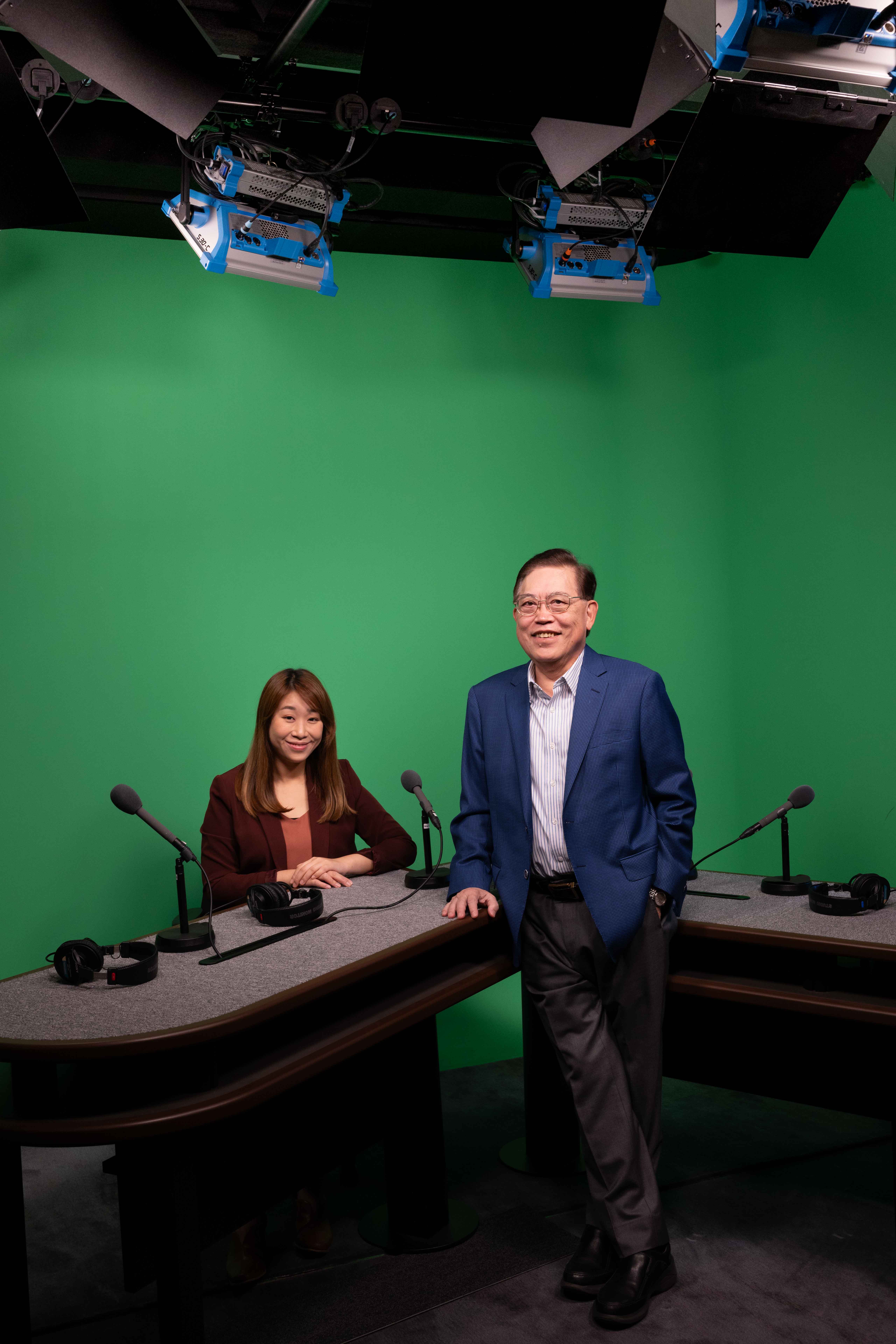
More
Ronald Chiu Ying-chun is a household name in Hong Kong’s journalism circles. During his years at the helm of Cable TV’s News Department, reporters under his leadership — including Zoe Tam — affectionately called him “Chief.” When asked about his former protégé, Chiu notes that his impression of Tam comes primarily from her reporting work. “I find her extremely dedicated and meticulous. She doesn’t shy away from challenging topics and holds herself to high standards.”
Now in her eighth year as a reporter — the only career she’s ever known—Tam’s journey began at the School of Journalism and Communication. As an undergraduate, she studied news reporting and editing while gaining hands-on experience with the university’s English practicum publication Varsity, where she took on roles as both reporter and editor. There, she and her classmates handled everything from story conceptualization to research, interviews, and final reporting. This comprehensive experience gave her valuable insights into the industry. “The professional world is certainly more intense, but my undergraduate experience exposed me to the entire process. Teachers would conduct editorial meetings, questioning our angles and requiring regular updates on our interview progress. That foundation proved invaluable for my career.”
Reflecting on her career, Tam acknowledges her willingness to tackle diverse news subjects, though at heart she’s always wanted to be a “storyteller,” with journalism being one medium for that passion. She candidly admits that the high-pressure environment can be overwhelming, but credits her undergraduate training for developing the resilience and problem-solving abilities that help her push through challenges. “From those initial moments of uncertainty to methodically working through problems and completing reports — that process is crucial in this profession. Whenever I face difficulties, I remind myself that with focus and dedication, I can overcome them.”
Resilience indeed defines successful journalists. Few realize that Chiu himself is a graduate of CUHK’s Master of Journalism program. Why would an industry veteran pursue further education? “I wasn’t satisfied with my knowledge,” he explains. “While I understood the practical workings of the industry, I believed the underlying theories and research deserved exploration. I wanted to challenge myself and stay current with the latest developments.”
Balancing work and studies wasn’t easy, but Chiu found those two years deeply rewarding — even worth using vacation days to complete assignments. Now serving as Associate Dean and Professor of Practice at The Hang Seng University of Hong Kong’s School of Communication, he jokes that his decision to further his education enabled his post-Cable TV career transition. “Had I not persevered through those two years, I’d simply be whiling away my days strolling through parks with no real purpose.” Addressing misconceptions
about journalism education — that it offers “limited prospects and poor compensation” —Chiu strongly disagrees. “Communication education builds a solid foundation not just in verbal expression, but in critical thinking. It broadens perspectives and instills a commitment to factual accuracy — all invaluable assets for any career path.”
Profiles:
Ronald Chiu Ying-chun earned his Master’s in Journalism from The Chinese University of Hong Kong in 2006. With over 40 years in Hong Kong’s news industry, he previously served as Cable TV’s Executive Director overseeing both News and Sports Departments. He is currently the Associate Dean and Professor of Practice at The Hang Seng University of Hong Kong’s School of Communication.
Zoe Tam graduated from The Chinese University of Hong Kong’s School of Journalism and Communication in 2017. She joined Cable TV’s News Department in 2018 and currently serves as Assistant Assignment Editor for HK01’s Local News Section. Her achievements include 6 Consumer Rights Reporting Awards (3 Gold). In 2021, she received a Certificate of Merit in the Best Video News Reporting category at the Chinese University Journalism Award.
【PR Veterans: A Conversation with Richard Tsang and Sofia Yip】
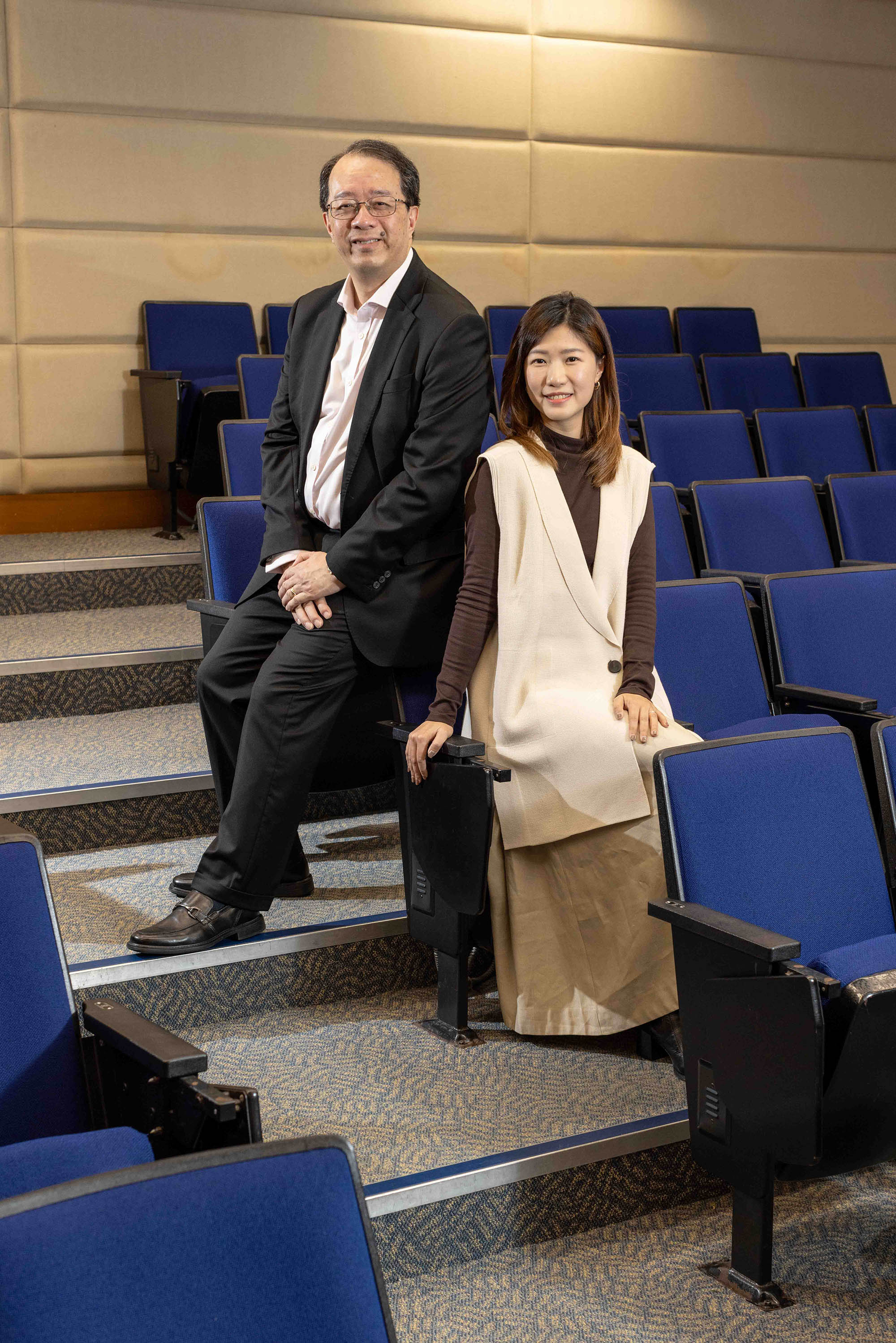
More
“In those days, without computers, publishing statutory notices was a painstaking process—every word change meant waiting 45 minutes for the machine to reprint a new film,” recalls Richard Tsang with evident enthusiasm. Tsang, who founded Strategic Public Relations Group Ltd in 1995 to provide financial PR consultancy services, considers himself an accidental entrant to the industry. “I never took PR courses during my undergraduate studies,” he laughs. “After graduation, I applied for several jobs, and the PR position was simply the first to accept me—so that’s where I landed.”
What began as chance quickly evolved into passion. After discovering his affinity for the work, Tsang established his own firm serving Hong Kong-listed companies across diverse industries and countries. “Our job regularly took us abroad, accompanying journalists and investors on operational tours. One colleague even led a media tour to Siberia about a decade ago! These are places you might never visit in your lifetime if not for work.” He adds, “Boredom is my greatest fear. While financial PR involves standard elements—writing press releases, organizing press conferences and interviews, meeting with investors—every company presents unique challenges that keep each day fresh.”
Drawing on his extensive experience, Tsang has spent thirty years as a part-time lecturer at the School of Journalism and Communication, where Sofia Yip once sat in his classroom. Now Head of Brand at Edelman Hong Kong, Yip studied PR initially to explore different career paths rather than with a determined goal. “I simply followed opportunities as they arose,” she explains, “and gradually found myself increasingly passionate about the work. Even after more than a decade in this field, I still find tremendous satisfaction in what I do.”
The media landscape has transformed dramatically since Yip entered the profession, shifting from predominantly print and broadcast outlets to a rich ecosystem of online and self-media platforms. PR professionals must constantly adapt, which Yip describes as part of the field’s appeal. “Our industry evolves rapidly, and with AI becoming mainstream, we’ll see even more innovative approaches. Industries, the global environment, and client needs change daily, requiring PR practitioners to continually reinvent how we accomplish our core objectives—that’s what makes it so fascinating to me.”
These two PR leaders—both initially without plans to enter the industry—have become standouts across generations. From technology brand promotion and crisis management to integrated marketing, Yip has navigated various PR specialties. She credits her education for nurturing essential curiosity. “Each client I work with faces distinct challenges. While some people shy away from differences, I embrace them. I’m genuinely interested in understanding client problems and the latest market trends.”
Tsang emphasizes that regardless of one’s communication specialty, certain principles remain non-negotiable—particularly truth-seeking and courage. “I cannot and will not help clients deceive others,” he states firmly. “Sometimes I must risk the business relationship by providing honest counsel. These principles must be upheld, and I believe many students enter communications studies with similar values: to gain professional knowledge and accurately reflect social realities.”
Profiles:
Richard Tsang graduated from The Chinese University of Hong Kong’s School of Journalism and Communication in 1988. He founded Strategic Public Relations Group Ltd in 1995 and currently serves as its Chairman. Since 1994, he has been a part-time lecturer at the School, teaching courses including “Fundamentals in Public Relations”, “Financial Public Relations” and “Investor Relations.”
Sofia Yip graduated from The Chinese University of Hong Kong’s School of Journalism and Communication in 2009. She currently serves as Head of Brand at Edelman Hong Kong. In 2022, she joined her alma mater as a part-time lecturer, teaching “Social Media and Crisis Communication.”
【Singing Without Fear】
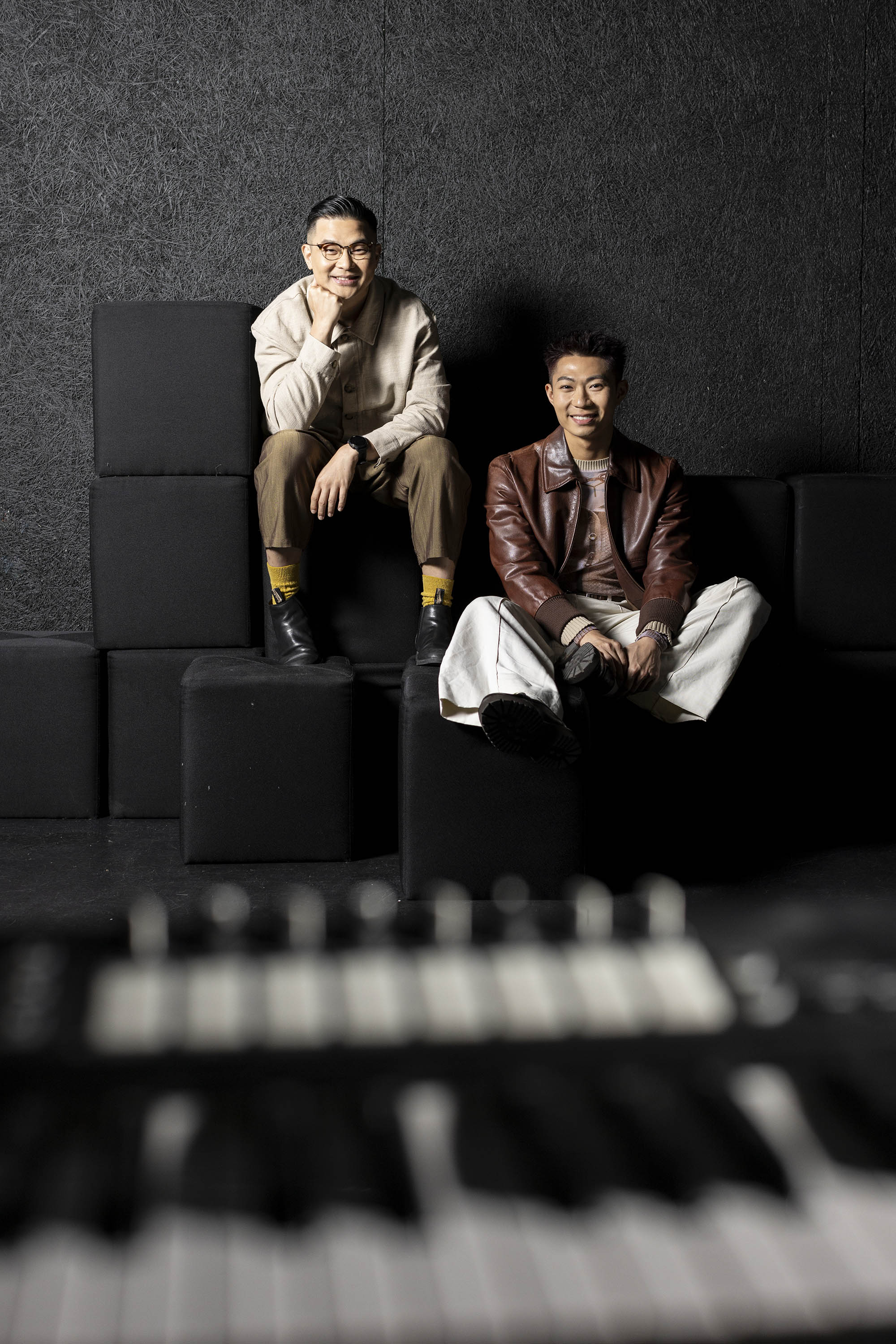
More
At the Hong Kong Coliseum, flags emblazoned with the RubberBand logo flutter as lead vocalist Mau Hou-cheong (nicknamed “6@Rubberband” or “No. 6”) performs with genuine passion. Without elaborate costumes, he commands applause from the entire venue. From the college’s amphitheatre to the prestigious Hong Kong Coliseum and international tours, his journey has far exceeded his expectations. With a smile, he recalls that it all began with simply enjoying karaoke – forming an impromptu group with dormitory mates for campus singing contests, eventually meeting his future bandmates, and setting the stage for everything that followed.
While a journalism and communication major might seem disconnected from music, No. 6 reveals that his studies were instrumental in his self-discovery. “Journalism helped me understand what truly interested me – people’s stories,” he explains. “I threw myself into profile interviews! As an editor for ‘U-Beat Magazine,’ I eagerly pitched my own story ideas, including features on foreign soccer players in Hong Kong. Years later, we wrote ‘Minority World Cup’ based on this theme for our band’s third album – in many ways, continuing what began during those early experiences.”
For independent singer-songwriter Zelos Wong, university similarly shaped his identity. He vividly remembers sharing his first demo with fellow journalism students in a classroom. Though Zelos had dreamed of becoming a singer since childhood, opportunities seemed out of reach until his journalism studies expanded his horizons. He credits his teachers for their openness to student ideas and consistent encouragement. “The School of Journalism and Communication gave me the opportunity to realize I could create my own work, which led me to songwriting.”
The two journalism graduates share a mutual respect. No. 6 particularly admires Zelos’s courage, referring to 2020 when Zelos dedicated his original song “Barnaby” to his late boyfriend while publicly coming out. This watershed moment opened doors for Zelos to explore themes of sexuality and gender identity in his mini-album “EmergenZy,” where his music videos showcase diverse expressions of gender and orientation. As the introduction to his song “The Show” aptly states: “Use your own body to showcase your allure.” Zelos reflects that journalism taught him about life’s possibilities – a lesson he carries forward: “After graduation, I sometimes feel constrained, forgetting there’s so much to explore. I worry about failure, but without failing and learning, the next success may never come.”
Music serves as their means of self-expression. Zelos senses profound kindness and warmth in No. 6 ‘s works. No. 6 attributes this to the humanistic values he developed through journalism. “We face countless problems without easy solutions, but through creation, documentation, and reporting, we can amplify what matters to us and bring it to wider attention.”
Zelos characterizes journalism graduates by their stubborn pursuit of good. “They fearlessly confront whatever challenges the world presents, using their hearts as shields – it’s a form of resilient determination.” This sentiment unexpectedly mirrors RubberBand’s lyrics in “See You Soon”: “In the vast future ahead, singing without fear, being myself without regrets.”
Profiles:
Mau Hou-cheong graduated from the School of Journalism and Communication at The Chinese University of Hong Kong in 2002. In 2005, he formed RubberBand as lead vocalist, releasing ten albums to date. He also directs music videos.
Zelos Wong graduated from the School of Journalism and Communication at The Chinese University of Hong Kong in 2016. In 2020, he launched his career as an independent singer-songwriter, releasing the mini-album “EmergenZy” and hosting programs including ViuTV’s “Beautiful Bitchy Bros.”
【Passion on the Airwaves: Three Generations of Radio Hosts Share Their Journey】
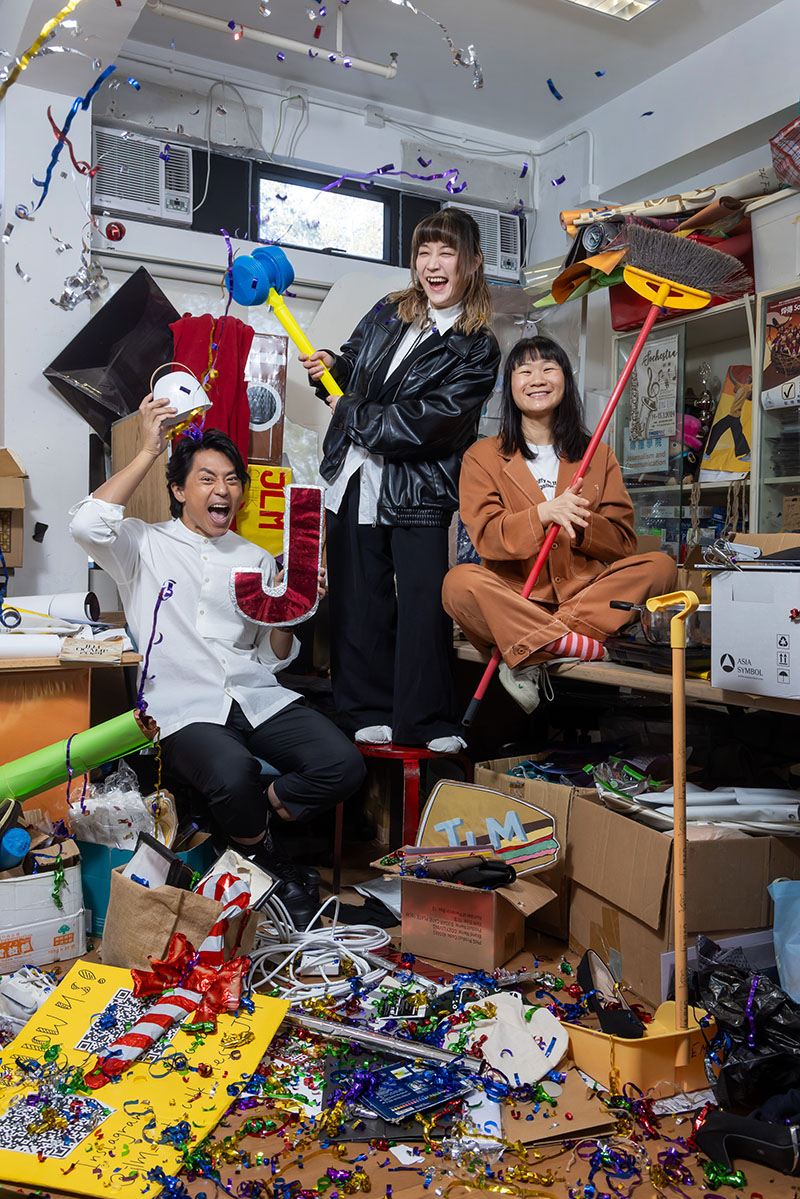
More
At Commercial Radio Hong Kong’s CR903, three graduates from different generations have found their calling. Sammy Leung, Amber Au, and Ah Jeng – all alumni of the School of Journalism and Communication – now share the airwaves at one of Hong Kong’s most popular radio stations. When asked what drew them to broadcasting, their answers converge on a simple truth: the desire to connect with others. “It really was that straightforward,” Ah Jeng reflects. “Radio brought me joy as a listener, and I wanted to pass that feeling on.”
But why choose radio in an age of diverse media? “There’s something special about voice,” Amber explains. “It’s immediate and authentic – you can’t replicate someone’s tone or inflection. That creates a real connection with listeners.” For Sammy, radio offered unparalleled creative freedom when he started. “You’re wearing every hat – producer, writer, director, performer. When inspiration strikes, you can run with it. Creating something truly yours… there’s nothing quite like it.”
Three decades into his career, Sammy briefly contemplated retirement last year but discovered he wasn’t ready to leave the mic behind. Despite his success across multiple entertainment platforms, radio remains his first love. Amber, eighteen years in, still brings the same dedication that once had her routinely skipping meals to complete interviews – though she adds with a laugh that she’s since learned “not everyone shares my extreme approach.” As Ah Jeng approaches her tenth year of broadcasting, she acknowledges the demanding schedule that requires her presence at the station almost daily. While many of her contemporaries dream of freelance flexibility, she considers herself “incredibly fortunate” to do what she loves.
Yet it’s more than just passion that drives them. Sammy recalls a senior student warning him about the industry’s challenges and modest pay during his first year at university. “I actually tried to transfer out,” he chuckles. But thankfully that didn’t work out. His education taught him something valuable about media’s social responsibility. “Sure, my shows are meant to entertain, but they should offer something more. That’s what I learned in school – we have a duty to contribute positively to society.”
Ah Jeng’s tone grows serious as she reflects on her role: “Radio is there for our listeners through every kind of weather, every kind of day. That’s both our responsibility and our promise. When you put your name to something like that… yes, it’s exhausting sometimes, but it’s also a privilege. Not everyone gets to do this work, and that’s what keeps me going.”
For Amber, the lessons from her university days still resonate – particularly the traditional journalist’s virtues of “iron feet, horse eyes, and immortal’s stomach,” representing tireless mobility, keen observation, and unwavering dedication. “I’ve always aimed to help people see the beauty in different perspectives,” she says. “Through our programs, we can open windows to new ways of appreciating the world. That’s been my mission from day one.”
Profiles:
Sammy Leung (Class of ’96, School of Journalism and Communication, CUHK) began his career after winning a DJ contest in 1994. Beyond his role at CR903, he’s established himself as a versatile entertainer across television, theater, stand-up comedy, and film.
Amber Au (Class of ’07, School of Journalism and Communication, CUHK) has risen to become both a director and program host at CR903.
Ah Jeng (Class of ’15, School of Journalism and Communication, CUHK) started at Commercial Radio as a scriptwriter before moving into assistant and hosting roles at CR903. Her television appearances have made her a familiar face to Hong Kong audiences.
【Preserving Humanity in Academia】
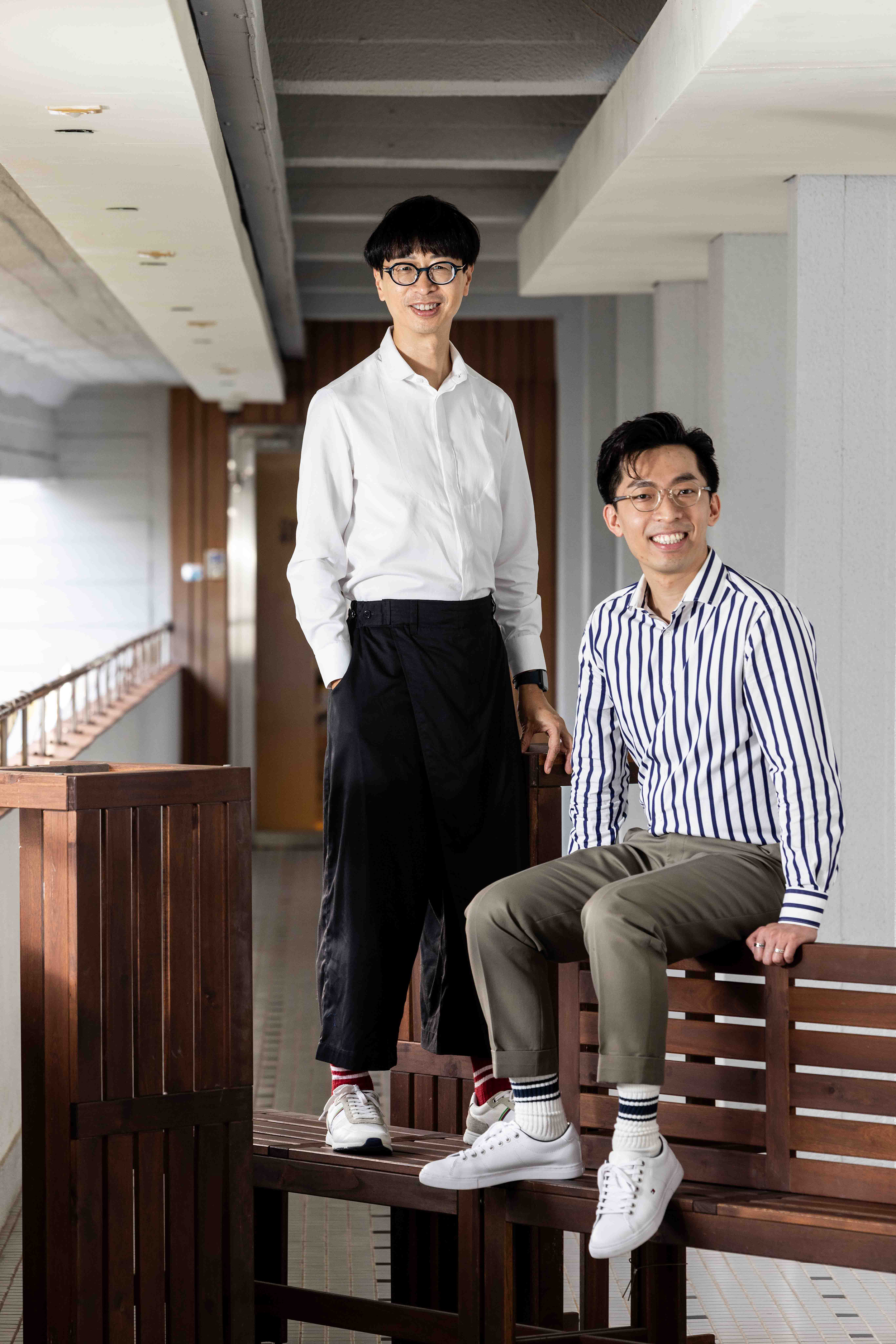
More
Throughout its 60-year history, the School of Journalism and Communication at The Chinese University of Hong Kong has cultivated generations of scholars, including Professors Anthony Fung and Macau Mak. Though graduating decades apart, both have found their way back to teach at their alma mater.
Despite numerous changes over six decades, the School’s fundamental philosophy has remained steadfast. While some view universities merely as vocational training grounds, both Anthony and Macau see it differently. What’s the most valuable takeaway from studying journalism and communication?
According to Anthony, technology evolves at a breakneck pace – from print media to radio, television, and now the era of digital media and AI. Technical skills often become outdated before they can be mastered. That’s why university education should focus less on technical training and more on developing systematic problem-solving abilities through sustained practice.
Macau shares this view. During his undergraduate and graduate studies in journalism and communication, the emphasis was on fostering critical thinking skills while maintaining a humanistic perspective. His experience as a reporter for the English-language student publication Varsity taught him a valuable lesson: while analyzing broader social issues, it’s crucial to understand individual stories. “In research, we often work with statistics, but behind each number is a human story. Learning to consider the human dimension in our analysis – that’s the most valuable lesson I gained from my journalism education.”
The two professors share more than just their alma mater and career paths – Macau was once Anthony’s student, and they became acquainted during a UK exchange program led by Anthony. For Macau, joining the School’s faculty was his primary goal after completing his doctorate. Having benefited immensely from his education there, he felt a deep sense of meaning in returning to nurture the next generation of students.
Anthony fondly recalls encouraging his academically gifted student to pursue advanced studies. Now that they’ve transitioned from mentor and mentee to colleagues, he takes genuine pride in Macau’s achievements. “I’m delighted to have Macau back teaching at the School. This represents our tradition of nurturing talent, and we hope to see more alumni return to contribute after completing their advanced degrees.”
Profiles:
Anthony Fung graduated from the School of Journalism and Communication at The Chinese University of Hong Kong in 1992, earning his master’s and doctoral degrees from the University of Minnesota. He returned to his alma mater in 2001 and currently serves as the Wei Lun Professor of Journalism and Communication and Dean of Social Science.
Macau Mak earned his bachelor’s degree and MPhil from the School of Journalism and Communication at The Chinese University of Hong Kong in 2016 and 2020 respectively, followed by a Ph.D. from The University of Wisconsin-Madison. He joined the School as an Assistant Professor in 2024.
beyond
[From Direct Expression to Subtle Communication]
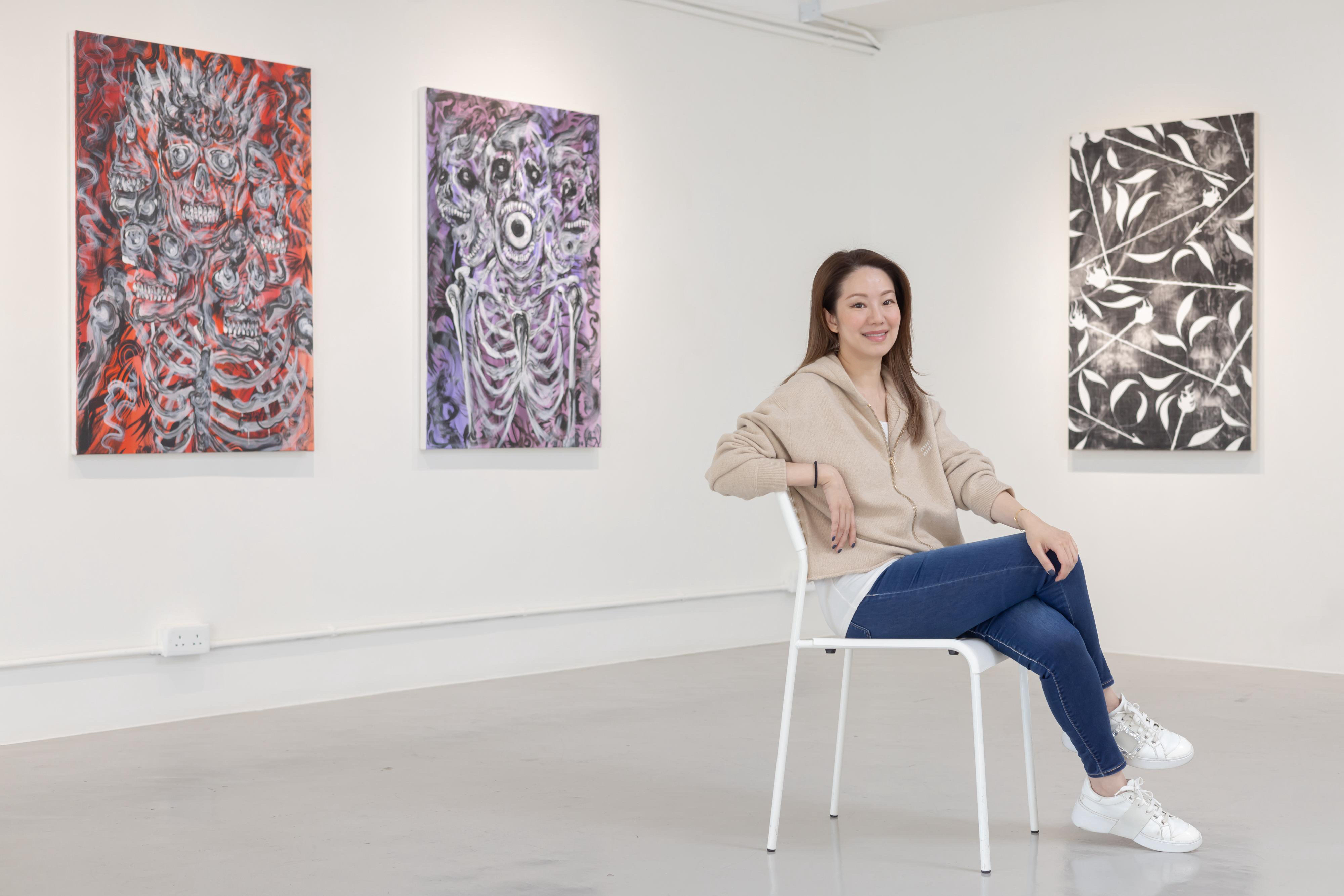
More
Paintings hang on white gallery walls as visitors pause before each work, contemplating their deeper meanings. The gallery was founded by Cheung Po-wah Sharon, a former senior journalist and entertainment industry executive who has carved out a new path in the art world. Many friends find her three career moves completely unrelated, she laughs, “but when I think about it, they’re all about communication—which is what I studied as an undergraduate.”
Cheung chose journalism and communication because she believed citizens need access to truth in order to think independently and drive social progress. “The facts closest to the truth—news—form a vital foundation for society’s development.” After graduation, she naturally became a reporter, “hoping to see more of the world and meet different people every day.”
A decade later, she switched tracks for the same reason: “I don’t like staying in my comfort zone. Once I get comfortable somewhere, I start feeling restless.” She moved into a senior role at an entertainment conglomerate that produced and distributed films, television shows, and music. She calls this period invaluable—”not a single day was wasted”—because while reporting broadened her horizons, journalists remain outsiders looking in. Being inside a publicly listed company dealing with real investments and stakes gave her entirely different insights that “made my world so much bigger.”
Eight years later, she pivoted again—this time overseas to study for a Bachelor of Fine Arts with a major in painting. She graduated with first-class honors, held solo exhibitions, and went on to establish a gallery promoting local art and providing exhibition platforms for Hong Kong artists. She describes following a calling: she felt a powerful urge to return to painting, a longtime interest, so she went back to school. “Then one thing led to another—opportunities kept appearing that pulled me into this field.”
Looking back, Cheung sees her entire career as revolving around communication, with her style of expression simply evolving from direct to nuanced. “News has to be precise and clear-cut. Entertainment works convey big ideas to mass audiences. Artists also have something to say, but they need to leave room for interpretation in their work—otherwise it often loses its artistry.” Still, the three industries operate quite differently. Friends think career changes come easily to her, she says with a smile, but stepping outside your comfort zone is never comfortable. She believes having an adventurous spirit is what journalism graduates share. “Like moving into completely different fields—but first, you have to be unafraid.”
For Cheung, her undergraduate education was like having “an incredibly long-lasting, high-powered battery installed.” “Journalism school provided essential training—like news gathering and editing—that made me comfortable with strangers and gave me the courage to face the unknown. That’s served me throughout my career and in all my relationships.”
Profile:
Cheung Po-wah Sharon graduated with a Bachelor’s degree in Journalism and Communication from The Chinese University of Hong Kong in 1995. She previously worked as a Senior Reporter on the China Desk at Cable TV News and as Senior Vice President at eSun Holdings Limited. She currently serves as Director of local gallery SC Gallery.
[The Ability to Embrace Change]

More
“Have you ever thought that for just over ninety Hong Kong dollars, you could spend three days and two nights cruising the Baltic Sea?” This question appeared in an article Daniel Koo wrote years ago for U-Beat Magazine, an undergraduate journalism publication. He was on exchange in Sweden, seizing every chance to travel—and even wrote guides to help readers backpack through Europe on a shoestring. Today, as Vice President of Shangri-La Hotel Group, his days of budget backpacking might seem like a distant memory, yet he still lights up when recalling them. He laughs when explaining his choice to study in Sweden: he “didn’t particularly like following the crowd” – a characteristic that has defined his entire career.
“Most parents want their children to pursue more traditional, so-called elite disciplines,” Koo explains, “but I wanted to carve out a different path and try something new. I discovered that journalism and communication was actually fascinating – you could learn so many different things, from filmmaking to advertising.” The field lived up to his expectations, giving him freedom to explore various possibilities, including unconventional internships. “Most of my classmates went for internships at news organizations, but I thought corporate communications was equally valid for journalism students. So I pursued an internship at Hang Seng Bank. The position didn’t even exist initially – I had to write directly to Walter Cheung, a senior executive in their communications department and fellow alumnus, to make my case.”
After graduation, Koo worked at various companies, all in digital technology roles. He currently heads the digital products department at Shangri-La, where he develops mobile applications to enhance the hotel experience for guests. His work aligns perfectly with his personal interests. “I love to travel, so using digital technology to improve people’s travel experiences feels incredibly meaningful. I’m genuinely passionate about it.”
While digitalization dominates today’s business landscape, Koo ventured into the field well before it became mainstream. Choosing an unconventional path meant having no roadmap to follow, but he credits his journalism education with preparing him for workplace challenges. “University isn’t just about acquiring knowledge – problem-solving skills matter enormously, especially adaptability. When you encounter completely unfamiliar territory, you need to master it quickly. Journalism provides an ideal environment for developing flexibility. Working on U-Beat Magazine, interviewing legislators and prominent figures – that meant stepping into unpredictable situations where thinking on your feet was absolutely crucial.”
Today, working in the rapidly evolving digital industry, he continues to face the unknown. “Technology is changing so fast that you truly don’t know what tomorrow will bring. If you can nurture the ability to handle uncertainty, I believe that will serve you incredibly well in whatever comes next.”
Profile:
Daniel Koo graduated from the School of Journalism and Communication at The Chinese University of Hong Kong in 2010 and currently serves as Vice President of Shangri-La Hotel Group, overseeing the digital products department.
[A Lifelong Commitment to Benefiting Society]
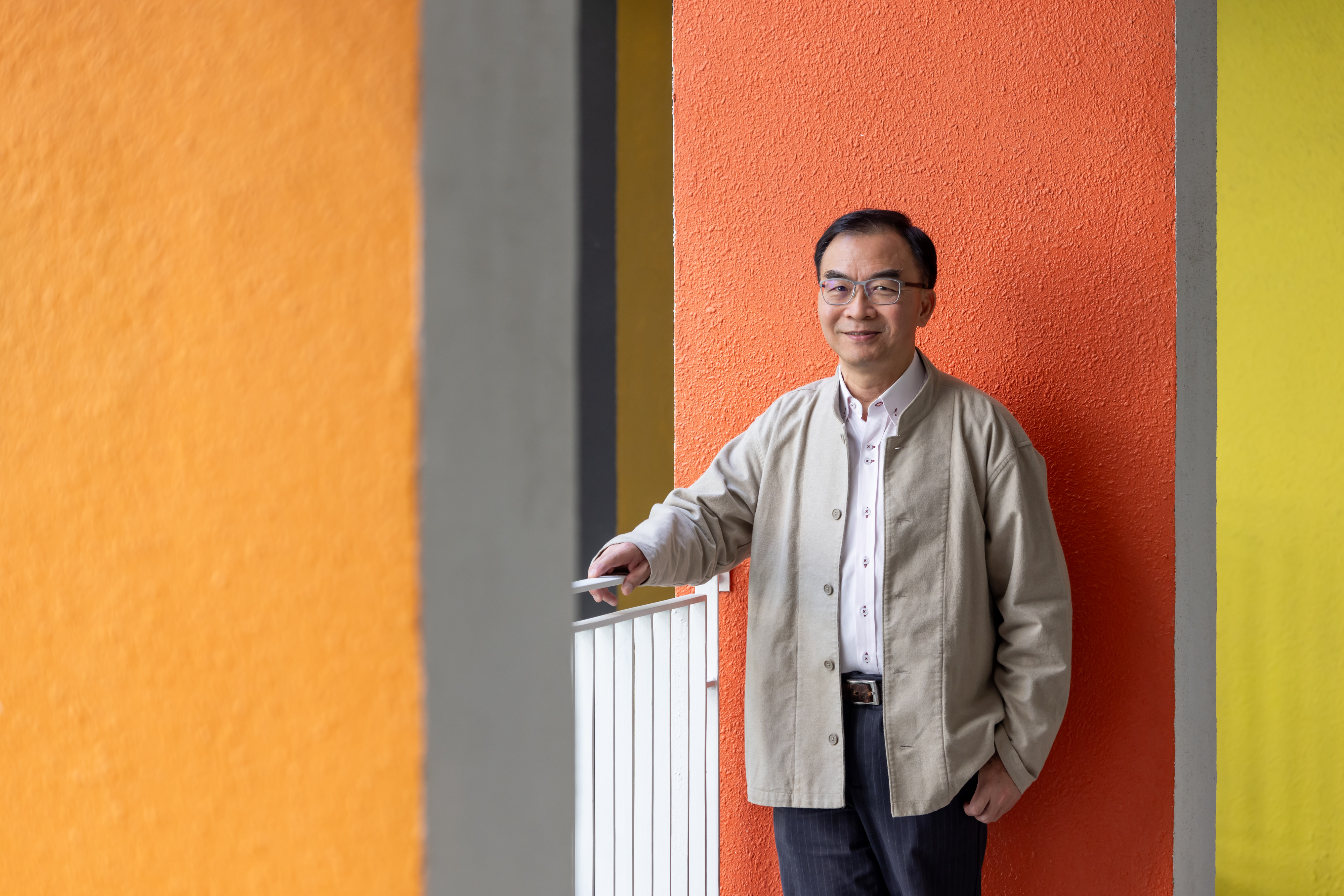
More
Education shapes both character and spirit. As Chan Cheuk-hay and many other journalism graduates often observe: “At CUHK, you can spot students from certain programmes a mile away—journalism students are definitely one of them.” Now President of HKCT Institute of Higher Education, Chan has devoted over thirty years to higher education management, driven by his deep understanding of education’s transformative power and his commitment to nurturing students.
Four decades after graduation, Chan’s memories of university remain crystal clear. He chuckles when recalling how much he gained from his journalism studies, particularly remembering the time he “butted heads” with his teachers after interviews for the student publication New Shatin. Today, he recognizes this as one of the programme’s most valuable lessons. “It wasn’t about being contrary for the sake of it. Journalism taught us to think independently—to question everything, regardless of the source. We learned never to accept information at face value, but always to examine its truth.” Equally important was developing critical thinking. “Our teachers always told us that a good news story starts with a good question, and good questions come from deep, quality thinking. These skills have served me my entire career.”
True to his journalism training, Chan became a reporter after graduation, spending nearly seven years at TVB’s news department and covering countless stories. But in 1993, he made a bold career pivot, joining Hong Kong College of Technology (HKCT) where he has remained ever since. Reflecting on his reporting days, Chan recalls the deep satisfaction he felt whenever his stories brought important issues to light and sparked positive social change—”there was this genuine joy that came from within.” Yet he also experienced frustration. “Think of it like a card game—reporters are always on the sidelines. When the players ignore your advice or stakeholders resist change, your hands are tied.”
Chan wanted to move from the sidelines to center court, using education to make a direct impact on young lives. “When I see students who once lacked direction find their path at HKCT—whether advancing to higher education or building meaningful careers—that brings me profound joy.” For Chan, both education and journalism serve the public good, and both have given him deep fulfillment. “My goal has always been to benefit society. That core mission hasn’t changed since my reporting days.”
Profile:
Chan Cheuk-hay graduated with a Bachelor’s degree in Journalism and Communication from The Chinese University of Hong Kong in 1985. He previously served as a reporter in TVB’s Public Affairs Division and currently serves as President of Hong Kong College of Technology and HKCT Institute of Higher Education.
[Redefining Success]

More
“I keep asking myself: What kind of education can truly bless a child’s life?”
Lam Chau-ha Sharon had every reason to stay on the conventional path to success. Her credentials were stellar—top exam scores, first-class honors from university. She could have easily remained among life’s “winners,” but after four years teaching secondary school, she made a bold decision: she quit to pursue her own definition of success, dedicating herself to life education and helping students learn from failure.
The turning point came during her time as a homeroom teacher for what the class labeled an “underperforming group.” While the education system fixated on test scores, Lam saw something different in these struggling students—remarkable qualities like resilience and humor. “These were kids dealing with family problems and learning difficulties,” she reflects. “I knew it wasn’t the mainstream curriculum that shaped who they really were.”
She wondered where these valuable traits originated, until one student casually provided the answer. “For us who’ve failed so much, failure is like eating salad—no big deal!”
This comment sparked a revelation. Looking at her high-achieving students, Lam recognized troubling similarities between them and her younger self: fear of failure and an overly pragmatic mindset. “I’m not saying these traits are necessarily bad, but the challenges ahead are enormous. Life isn’t just about good grades, landing a good job, and cruising to retirement. So I thought—instead of teaching kids to sail in calm waters, why not teach them to navigate storms?”
This insight led Lam to establish a life education organization that partners with schools to build students’ “psychological muscle” through activities designed to help them embrace setbacks and failures. Breaking new ground wasn’t easy—she describes the process as having “no roadmap to follow.” “Without my journalism and communications background, I never would have had the courage or felt equipped to take this leap.”
Her undergraduate experience provided what she calls “inner and outer cultivation.” The program’s philosophy served as “inner training,” emphasizing creativity and innovation—“the ability to build something from nothing.” The practical skills formed the “outer training”—media techniques like layout design and copywriting that she still uses today. She pulls out a folder she created for teachers and students as an example: it features a pair of scuffed sneakers alongside her signature message—“Only those who walk will fall.”
This message captures the heart of her educational philosophy. “I often ask kids: ‘Who never falls down?’ They tell me it’s people who are lying down or sitting still. And who does fall? People who are walking, running, moving forward. I tell them we have no right to mock someone who falls, because they’re actually moving—and that takes courage.”
She sees a parallel with her fellow journalism graduates: “They’re people in motion, constantly exploring and pushing boundaries.”
Profile:
Lam Chau-ha Sharon graduated from the School of Journalism and Communication at The Chinese University of Hong Kong in 2010. After working as a secondary school teacher, she founded the life education organization Why Not Education in 2015.
[Pursuing Aspirations in Developing Regions]
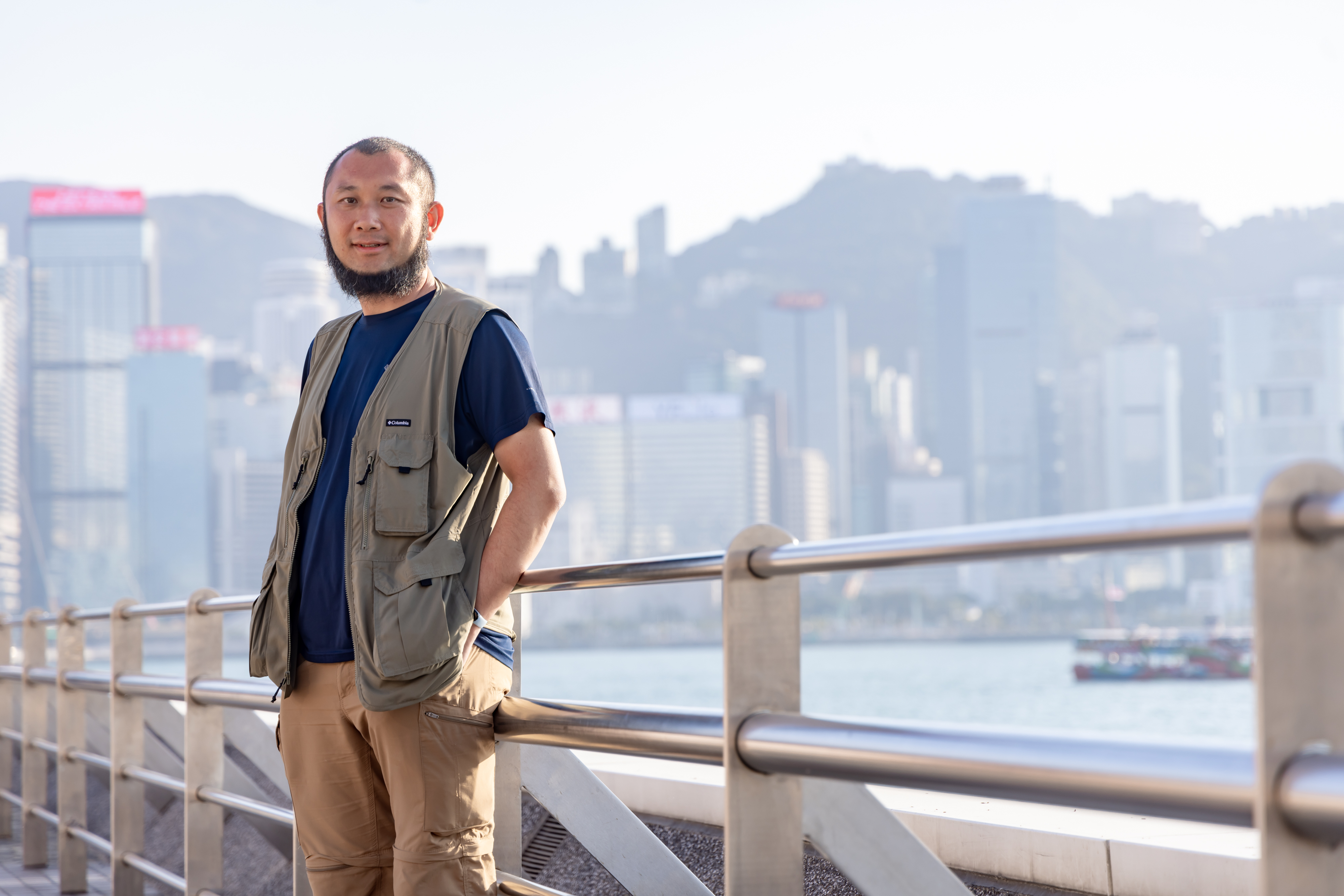
More
Search for “Afghanistan” online, and familiar keywords dominate the results: “war”, “Taliban”. These associations hardly surprise anyone, and understandably, many people avoid the country altogether. Yet Antony Kar-hung Tam worked there for four years. As a UNESCO official, he has implemented educational projects across Thailand, Myanmar, Afghanistan, and Pakistan, working to improve local educational conditions. Just a month ago, he arrived in Iraq—his new base of operations.
This career trajectory might seem disconnected from journalism and communication studies. Tam admits that when he chose the field as an undergraduate, he never planned to enter the media industry. His heart was set on teaching. He gravitated toward journalism and communication for two reasons: his love of writing, and his belief that effective teaching requires a broad worldview—something he felt the programme could provide.
Education had always been his calling. Inspired by exceptional teachers during his secondary school years, he set his sights on joining their ranks, planning to teach in Hong Kong after graduation. Life, however, had other plans. Despite his original intentions, he has never held a full-time teaching position. After graduate studies in the United States, he joined UNESCO, where he has remained ever since, collaborating with governments in developing regions to implement various educational projects—fulfilling his educational mission in a different way.
The work isn’t without its challenges. During his time in Afghanistan, he stayed in a UN security compound, and when the Taliban seized control of the city, he was temporarily evacuated for safety. Now based in Baghdad, Iraq’s capital, he notes that the conflict there ended eight years ago. While tensions still simmer beneath the surface, the situation is relatively stable compared to Afghanistan, making it a “more relaxed place” to work. Does he worry about safety in these regions? He explains that his organization focuses on development rather than humanitarian aid, and work requires strict adherence to UN security protocols, so the risks aren’t as high as one might imagine. Still, he adds, “If I were worried, I wouldn’t choose to work in these places.” This work brings him immense satisfaction: “Take Afghanistan, for example—it has one of the world’s highest adult illiteracy rates. Many people there have never had the chance to attend school. When we implement even simple projects—like teaching basic literacy—the difference we make is enormous.”
Not every journalism and communication graduate enters the media industry, but the programme offers valuable skills regardless of career path. Tam credits his undergraduate studies with providing intellectual breadth, particularly through the programme’s encouragement of minors and interdisciplinary exploration. His most significant takeaway, however, was learning to think critically and ask the right questions. “Working on the editorial team at Varsity, the English news publication, taught me how to ask effective questions. Now, managing my team, I can pose the right questions to staff and stakeholders to get the information I need and move projects forward. That skill is invaluable in any workplace.”
Profile:
Antony Kar-hung Tam graduated with a bachelor’s degree from the School of Journalism and Communication at The Chinese University of Hong Kong in 2006, and completed the Postgraduate Diploma in Education at The Chinese University of Hong Kong in 2007. He subsequently earned a Master’s Degree in Sociology and Education at Columbia University in New York and completed a graduate program in International Comparative Education at Stanford University in California. He is currently the Chief of Education in the UNESCO Office in Iraq.
[The Resilience of Life]
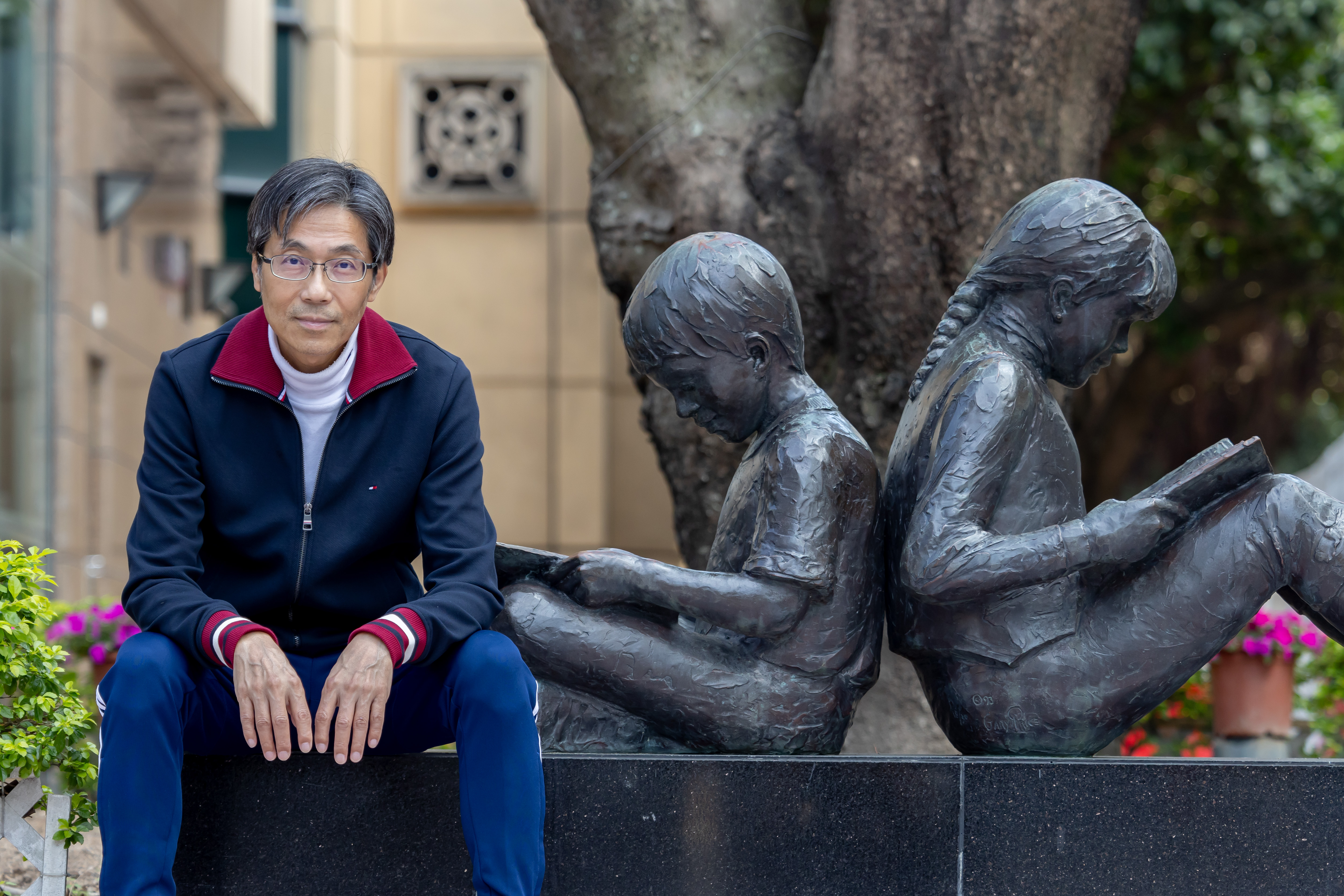
More
Jim Hok-yan Chang laughs when he describes his life as a “540-degree magnificent turn.” He’s referring to three major career pivots: graduating from journalism school only to become a professional Chinese orchestra musician, then joining the public library system where he rose to Chief Librarian of Hong Kong Central Library, and finally—after retirement—finding himself teaching Chinese music at university. “Each turn was 180 degrees,” he chuckles. “Add them up and you get 540 degrees, right?” The three fields couldn’t be more different, yet he insists these weren’t calculated moves but rather “fate’s arrangement.” So how exactly did fate choose him?
It all started during his undergraduate years. Chang calls himself a “journalism school dropout”—not literally, but in spirit. Within his first year, he discovered he was “absolutely passionate about music.” He ended up spending most of his time on music as a minor, so when a Chinese orchestra offered him a position after graduation, it felt natural to accept. “Back then, the orchestra didn’t have any university graduates—I was the odd one out.” But the orchestra went through personnel changes, and with his family strongly opposing a music career, he reluctantly had to quit.
“Why the library? That was fate too,” he says. Becoming a civil servant was really about fulfilling his father’s dream. “It was at least a stable job, you know. When they offered it to me, I took it. But honestly, I’d never been particularly interested in libraries as a kid. Now here I am, spending every day in one—I always joke that it’s karma.” He figured he’d have to give up music entirely, but it turned out the library had few staff members with musical knowledge. Almost without realizing it, management kept assigning him music-related projects. “I guess it was that musical connection that kept me here.”
He threw himself into studying library science, and his career took off. By retirement, he had become Chief Librarian of Hong Kong Central Library. In his later years, he was tasked with creating special collections at the Central Library, specifically focused on preserving Hong Kong’s musical heritage. “We took this on because honestly, apart from the Central Library, no other institution has the resources for this kind of work. It’s a cultural mission.” His orchestra background proved invaluable—many precious items came from donations by musicians he’d known during his performing days. “We’ve assembled some incredibly rare firsthand materials that will be crucial for anyone studying Hong Kong music history.”
As one of the few librarians with serious musical credentials, he finally understood what fate had in mind. “I’m really happy that I was able to leave some mark in the space where music and libraries intersect.” His doctoral degree in music librarianship, he says, represents the “perfect marriage” of his two professional worlds. But what does any of this have to do with journalism? Chang sees his four undergraduate years as “when everything clicked.” The training in journalism and academic writing sharpened his awareness of society, taught him to think critically and analytically, helped him distinguish right from wrong and stick to his principles, built his positive outlook on life, and strengthened his resilience—all of which shaped who he became.
“You can’t control fate,” he reflects. “When people find themselves in situations they don’t like or that don’t suit them, many choose to complain. But I believe you should either not do something at all, or do it to the absolute best of your ability. Face any challenge with a positive mindset, and you’ll always come away with something valuable.” He believes in both fate and effort: “When you refuse to give up, opportunities will come your way, and that’s when you can really achieve something. That’s been my experience for most of my life.”
Profile:
Jim Hok-yan Chang graduated with a bachelor’s degree in Journalism and Communication from The Chinese University of Hong Kong in 1984. After graduation, he served as a professional sheng (Chinese reed instrument) player at the Hong Kong Chinese Orchestra. He later joined the former Urban Council Public Library system and served as Chief Librarian of the Hong Kong Central Library before retirement. He is currently a Part-time Lecturer at the Academy of Music, Hong Kong Baptist University.
[From Breaking News to Making History]
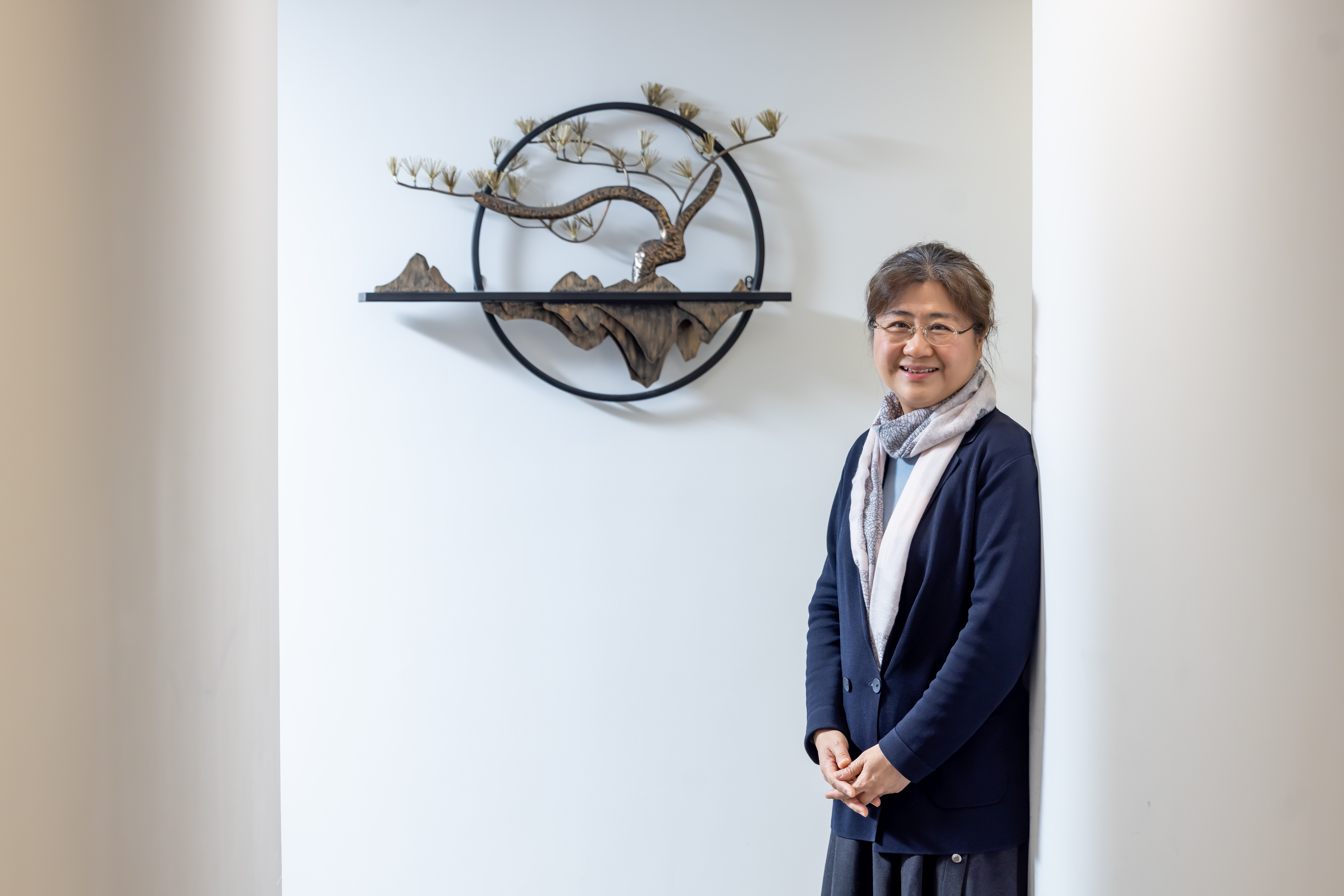
More
Every profession has its insider language—those telltale phrases that instantly mark you as one of the tribe. Journalism is no different. Ask any media professional about the oft-quoted maxim “journalism is the first draft of history,” and they’ll tell you it captures something essential about the news business: that it’s not just about transmitting information, but about creating the very first record of what happened. Still, journalism and history are different beasts entirely, and few people manage to study both. May Bo Ching is a rare exception.
Today a historian, Ching appears reserved, but her face lights up when recalling her undergraduate reporting experiences. During her freshman year, she signed up for a university exchange program. Then student protests broke out just before departure, and the university pulled the plug. But Ching and her upperclassmen had other ideas. They went anyway, heading straight into the action to report firsthand. “We felt this was exactly when we needed to step up. As aspiring journalists, we had a professional duty. So we went to the student dormitories, interviewed university students, came back to Hong Kong, and co-wrote articles for publication.”
She’d done the undergraduate training, undergone journalism internships, written plenty of those first drafts of history. But somewhere along the way, she realized her heart was pulling her toward something deeper. Ching had been drawn to history since high school, studying both Chinese and Western history. “At first, I wasn’t particularly conscious of it—I just naturally gravitated toward the subject.” It wasn’t until graduation loomed and career decisions had to be made that she really tuned into that pull. “Journalism absolutely serves a vital purpose, but it’s constrained by deadlines and time pressures. You have to turn stories around quickly, which doesn’t leave much room for really thinking through what happened.” History offered something different. “Everything humans have ever done is history. It leaves traces everywhere, and you can take your time digesting it all, choosing what fascinates you, writing about what genuinely interests you. The potential for discovery is enormous.”
These days, she specializes in modern Chinese social and cultural history, and there’s a thread running through much of her work that traces back to those journalism roots. Many of her research projects touch on communication in some way. When she studies human behavior, she factors in how communication technologies have shaped it. “Especially starting in the early 20th century—gramophones, radio, talking pictures, television, and now multimedia and AI. This technological evolution has had such a profound impact on humanity, and somewhat unconsciously, it became a central preoccupation for me. That’s the lasting influence of my undergraduate training.”
During her years teaching at Sun Yat-sen University’s History Department, she developed and taught a course called “A Social History of Media.” The prep work sent her back to the foundational texts—Marshall McLuhan and other communication theory pioneers. “I had to completely rethink what communication actually means,” she recalls. “It totally transformed my understanding.” She also mentored graduate students researching Chinese communication history. “Maybe I’m not working directly in the field or teaching communication courses, but I’ve always believed that communication studies need the historical perspective to really succeed.”
Profile:
May Bo Ching earned her Bachelor’s degree in Journalism and Communication from The Chinese University of Hong Kong in 1990 and completed her Doctor of Philosophy in Modern Chinese History at Oxford University’s China Studies Programme in 1996. She currently serves as Professor and Head of the Department of Chinese and History at City University of Hong Kong, and Associate Dean of the College of Liberal Arts and Social Sciences.
[The Infinite Possibilities of Life]

More
“Kids nowadays sing ‘Baby Shark,’ but back then I was singing ‘Su San Escorted to Trial’!” Eugenea Cheung says with a hearty laugh. It’s hard to imagine that this former news anchor of many years is now passionately sharing her dream of Chinese opera. From journalism to the stage, her journey is a vivid example of life’s endless potential.
“I’ve always loved traditional Chinese culture. The opera costumes are stunning, the lyrics are poetic, and it satisfies my passion for stage performance—it’s the perfect combination,” Cheung says. Her love for Chinese opera began in childhood, though it remained a hobby for many years. News anchoring was her first career; she discovered her interest in journalism during her university studies. “Taking anchoring courses made me realize how much I enjoy connecting with people—understanding and telling their stories.”
After graduation, she became a news anchor. Though the work was meaningful, the lifestyle took a toll. “Reporting news overnight was exhausting. I needed something to rejuvenate my mind and spirit, which led me back to Chinese opera.” At an opera workshop, she met Hong Kong Jingju and Kunqu opera performing artist Tang Yuen-ha and spent years studying under her during off-hours. Eventually, Cheung made the bold decision to leave journalism and dedicate herself fully to the performance and promotion of Jingju and Kunqu opera. “Initially, I studied Chinese opera purely to fulfill my desire to perform on stage, but gradually I developed a sense of mission—I began asking myself if I could contribute something more.”
Last year, Cheung traveled to Beijing alone to pursue a master’s degree at the National Academy of Chinese Theatre Arts. As the only Hong Kong graduate student ever admitted to the program, she acknowledges the tremendous challenges of this path. Unlike her classmates who began their rigorous “child training” in early childhood, she started much later in life. “At my age, professional athletes would already be retired, yet I’m just beginning. The physical demands and technical skills required are immense.” Moreover, Chinese opera remains a niche interest in Hong Kong, and few understand her commitment to this art form, which sometimes leads to moments of doubt. What sustains her is the spirit of courage she developed through journalism. “I believe this is the path I’m meant to follow—the path I love. Even if I encounter failures along the way, what does it matter?”
Cheung believes that although she has left journalism behind, the essence of storytelling remains at her core. “What I studied in my undergraduate years was contemporary communication, while Chinese opera represents ancient communication. In the past, everyone watched opera; it was the primary vehicle for storytelling. I’ve simply shifted from news communication to cultural communication, but I’m still telling stories.”
Profile:
Eugenea Cheung graduated from the School of Journalism and Communication at The Chinese University of Hong Kong in 2011. She worked as a Cable News anchor for many years while simultaneously studying at Jingkun Theatre starting in 2012. In 2024, she enrolled in the full-time master’s program in Jingju and Kunqu performance at the National Academy of Chinese Theatre Arts.
[From Journalism to Finance: An Unexpected Journey]
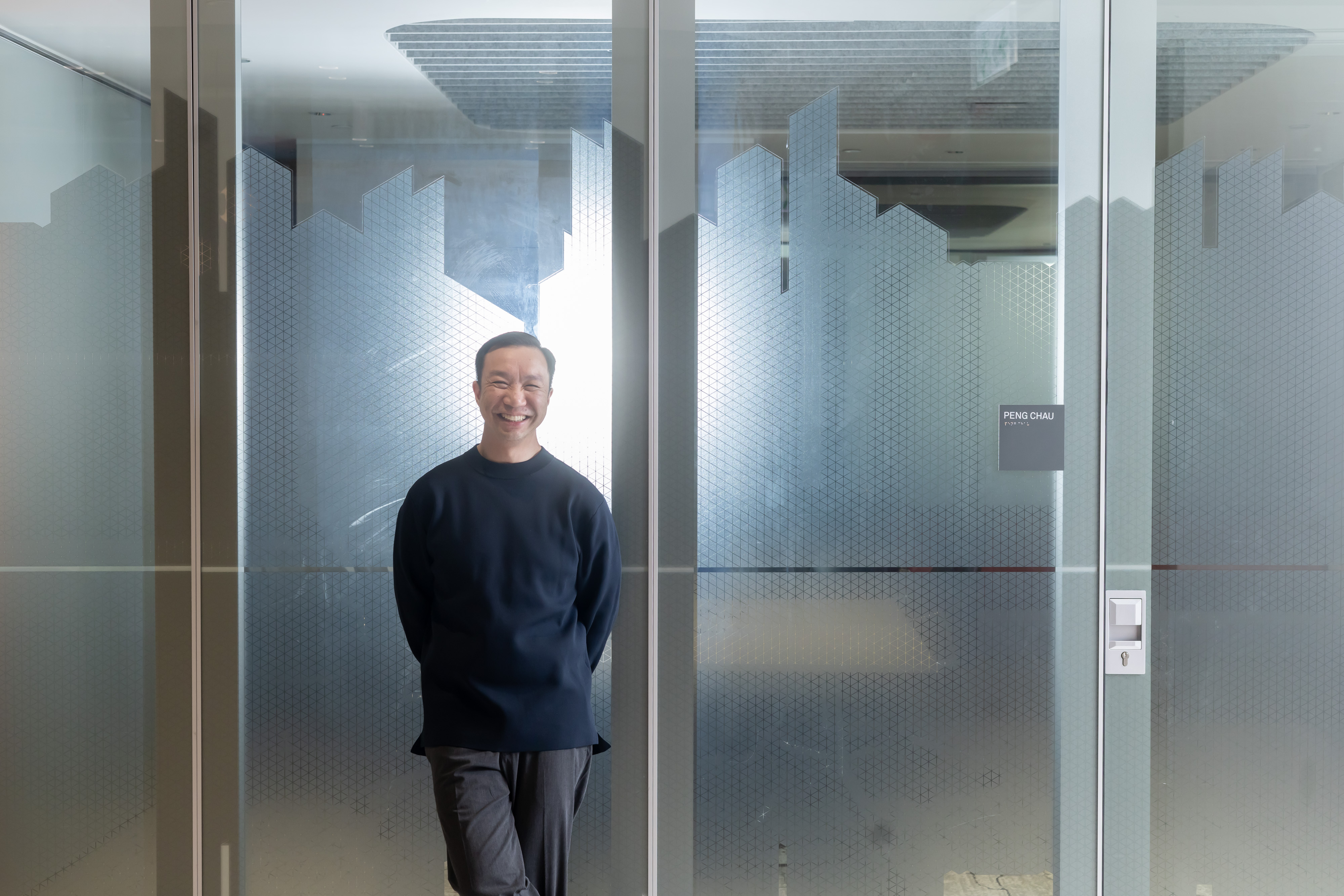
More
“I have an aversion to property and stock markets—I dislike the speculation involved—yet here I am working in finance!” jokes Aries Poon, who has carved an unexpected career path since graduating from the School of Journalism and Communication. Not only did he spend years as a financial journalist, but he now serves as Head of Asia-Pacific and Latin America Insights and Analysis at S&P Global Market Intelligence, overseeing economic forecasting and political risk analysis. None of this was in his original game plan. His philosophy is simple: when opportunities arise, make the most of them, “and then your destiny will find you.”
His journey began during his college years. Poon laughs about having “inexplicable confidence” when he “applied for the most competitive program.” Avoiding business studies, he landed in journalism—a decision that proved surprisingly fitting. His natural talent for verbal expression and logical reasoning, coupled with his passion for analyzing relationships between different factors, aligned perfectly with journalism’s core requirements. After graduation, he thrived as a local news reporter, earning recognition for his abilities. “I love responding to breaking news—the adrenaline rush, the quick thinking, the human interaction. It’s exhilarating!”
The pivot to financial journalism happened by chance. Poon embraced this shift because he was open to learning opportunities. Over time, he discovered finance’s multifaceted nature beyond property and stocks, including the fascinating world of macroeconomics. “The flow of capital often reveals shifting political winds,” he notes. Finding deeper meaning in financial reporting, his career steadily progressed from reporter to bureau chief, then to S&P’s news department, where his supervisor recognized his analytical talents and steered him toward research.
Reflecting on his professional journey, Poon quips: “Deep down, I still want to be a journalist!” Nevertheless, he finds his current role intellectually stimulating and challenging. “My job now goes beyond immediate analysis—I need to make reasonable predictions about future trends, something journalism never required. It’s been an incredible learning curve.”
Poon recalls valuable advice from his supervisor: effective research analysis requires keeping personal opinions out of the writing. This resonated with his journalistic principles: “As a reporter, I never wanted readers to detect my political leanings through my stories. My role was to provide information and let readers form their own judgments. Research demands even greater neutrality. Understanding the importance of impartiality—that’s something my journalism education instilled in me.”
Profile:
Aries Poon graduated from the School of Journalism and Communication at The Chinese University of Hong Kong in 1999. His previous roles include Taipei Bureau Chief for Dow Jones Newswires and Bureau Chief for a Wall Street Journal division. Currently, he serves as Head of Asia-Pacific and Latin America Insights and Analysis at S&P Global Market Intelligence.
[Giving Her All Without Regrets]
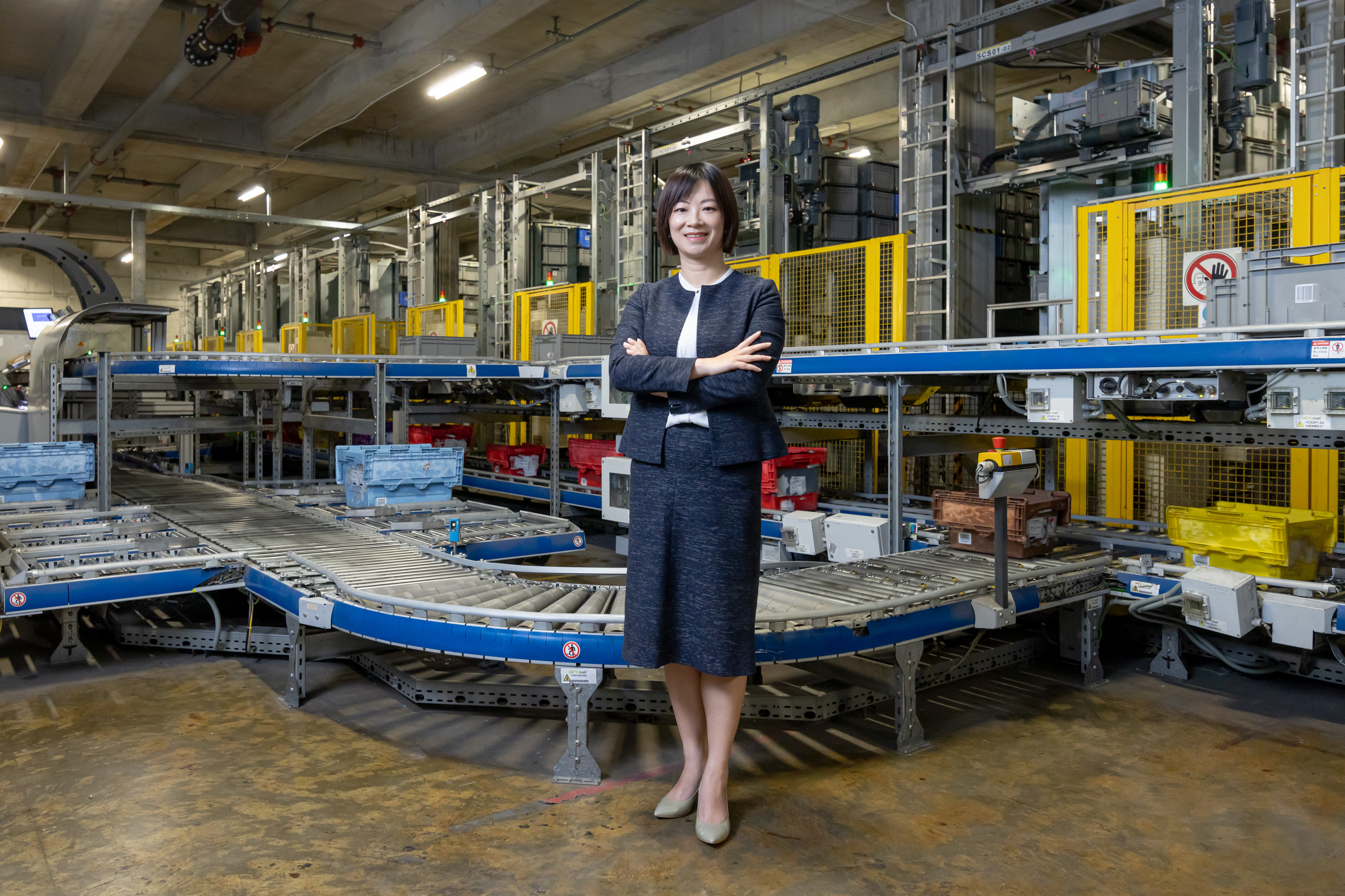
More
At HKTVmall’s logistics center, boxes of merchandise move seamlessly along conveyor belts, sorted by a fully automated system before being loaded onto delivery trucks. The e-commerce platform’s success might make it easy to forget that the company began as a broadband provider and multimedia production company. These three industries require vastly different expertise, and though Jelly Zhou has remained with the company throughout its evolution, she’s essentially changed careers multiple times. Each transformation meant starting from scratch, but Zhou, now heading HKTVmall, explains that despite working in fields unrelated to her academic background, she’s consistently embodied the “all-in” spirit she cultivated at the School of Journalism and Communication.
As one of the first mainland Chinese students in CUHK’s School of Journalism and Communication, Shanghai-born Zhou recalls her first required course, “Mass Media and Society,” with a laugh. “It was a tremendous shock,” she says. Unable to understand Cantonese, unfamiliar with Hong Kong culture, and completely unaware of local current affairs, she struggled with a course that demanded extensive analysis of Hong Kong news and cultural phenomena. She describes the difficulty as “extremely challenging” multiple times. The different writing conventions between mainland China and Hong Kong nearly caused a breakdown during her practicum with the School’s publication U-Beat Magazine. “My first article was terrible. I’d never received such criticism before and almost hid away to cry.”
“I realized I needed to work ten or twenty times harder than local Hong Kong students to excel academically. But this experience pushed me to work harder and accelerated my understanding of Hong Kong society.” Her now-fluent Cantonese stands as testament to her determination. “This experience proved invaluable. Later, whenever I faced challenges in further studies or work, I knew that with perseverance, no obstacle was insurmountable. At the School of Journalism, I learned self-reliance and diligence, which enabled me to achieve breakthroughs.”
These breakthroughs have paralleled her company’s evolution. After graduation, she joined City Telecom, staying on as the company transformed from a broadband provider to a multimedia production company and finally to an e-commerce platform. Each transition was essentially starting over, but she faced these challenges head-on. From her belief that Hong Kong deserved “a high-quality fiber optic network” to her vision of “Hong Kong’s own online shopping platform,” she has consistently sought to create more choices for local residents. “That’s something I find deeply satisfying,” she notes.
When discussing Hong Kong’s e-commerce future, Zhou speaks with evident passion. She believes this enthusiasm is characteristic of journalism school graduates: “We approach everything with tremendous dedication and aspire to contribute meaningfully to society. That’s something I’ve observed consistently among my peers.”
Profile:
Jelly Zhou graduated from the School of Journalism and Communication at The Chinese University of Hong Kong in 2003 before joining City Telecom. Since 2020, she has served as CEO (Hong Kong) of Hong Kong Technology Venture Company Limited, overseeing the company’s e-commerce operations throughout the Hong Kong region.
[Helping Others Reflect on Their Inner Selves]

More
“A peaceful mind comes from regularly observing your inner thoughts, not being swayed by external circumstances. This is something we can all achieve.” This message appears in one of Betty Yang’s social media posts. The concept of “reflection” she references comes from Buddhist philosophy, referring to the practice of observing and understanding one’s own mind without being influenced by the outside world. Today, Yang works as a practicing counselor, having completed master’s degrees in both Buddhist studies and counseling. If this represents the second half of her life journey, then her first chapter was dedicated to the textile industry.
After finishing her undergraduate degree, Yang established her own company—a path that might seem disconnected from her journalism and communication studies. However, she insists this wasn’t the case at all. “What I learned in those programs proved incredibly valuable,” she explains. She took a “STOT” course and wrote her thesis under the guidance of Professor Lee Siu-Nam, Paul, where she developed critical research skills: forming hypotheses, finding solutions, and identifying the conditions and limitations that lead to specific outcomes. “The principle of ‘bold hypothesis, careful verification’ aligned perfectly with my approach to business. Though I was breaking new ground with no precedents to follow, I felt incredibly well-equipped because journalism and communication had given me so many tools to tackle difficult problems.”
Starting with a small shop in Sham Shui Po, she grew her business significantly over more than two decades, eventually partnering with several internationally renowned brands. Yet at the height of this success, Yang decided to take a step back, passing the leadership responsibilities to her second-in-command team, and embarked on a path of self-reflection.
She recalled the local people she encountered during a four-wheel off-road driving tour in Tibet, and several employees who had become monks while she was managing a project in Thailand. Curious about how people draw spiritual strength from religious practice, she enrolled in a master’s program in Buddhist studies. One of the counseling courses focused on end-of-life care resonated deeply with her personal experience. “My father passed away when I was 31. In the years that followed, whenever colleagues or friends lost loved ones, I found myself naturally drawn to supporting them. Years later, many told me, ‘Thank you for guiding me through that difficult time.’ That’s when I realized my father had given me a profound gift—by facing mortality at a relatively young age, I had developed the capacity to help others through similar experiences.”
She began volunteering at a Buddhist hospital visitation department, visiting hospitalized and palliative patients. To further her end-of-life care skills, she pursued a master’s degree in counseling. As her second life unfolded, Yang became a practicing counselor, specializing in counseling cancer patients, adolescents, and parents, helping others reflect on their hearts.
She recalls Professor Lee once sharing that communication has different levels: mass communication aims to deliver messages to a broad audience, but he was more interested in self-communication and interpersonal communication. It took her a long time to understand this. Her current aspirations are still related to communication, but counseling emphasizes listening more. “The more actively and willingly you listen, the more your words can penetrate the client’s heart.”
“When you listen to someone’s difficulties and circumstances, you can help them in their own way. I’m not telling them what to do, but rather helping them realize how they can move forward on their own.”
Profile:
Betty Yang graduated from the Chinese University of Hong Kong with a bachelor’s degree in Journalism and Communication in 1990. She was one of the founders of a textile business that she ran for 25 years. She later completed master’s degrees in Buddhist studies and counseling and is currently a practicing counselor.
[The Bridge Between Journalism and Theology]
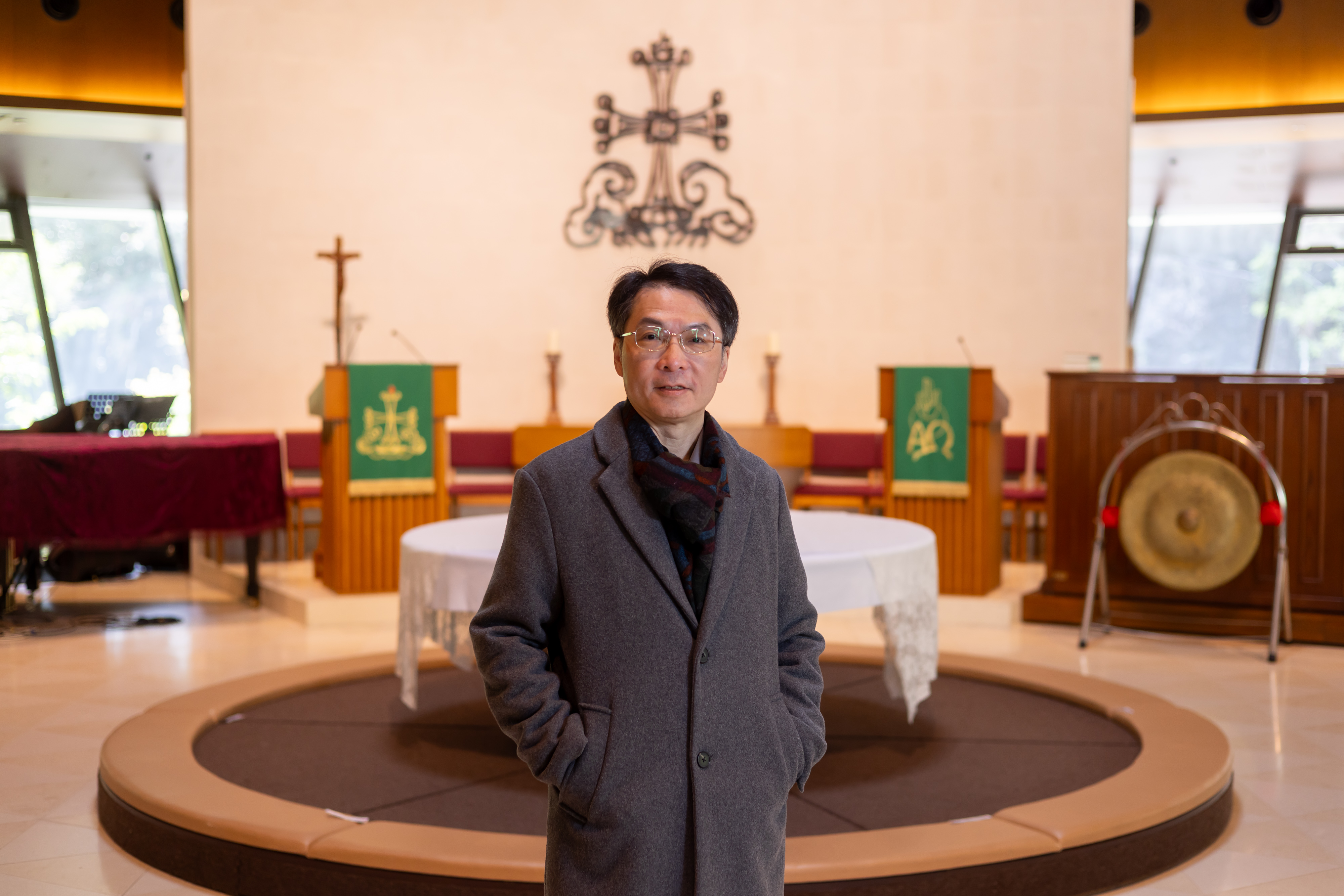
More
Outside the Police Headquarters, a group of reporters waited for the Commissioner of Police to appear for an interview. Among them, one stood out─microphone in hand while deeply engrossed in a theology book. This was Francis Ching-Wah Yip. The scene was captured during a television news broadcast, and a former colleague sent him the screenshot as a memento. Though now serving as Dean of the Divinity School, Yip still speaks with excitement when recalling his journalism career. “Being a reporter was so dynamic,” he says with a smile. “I’m still very interested in it.”
His passion was rooted in social engagement. During high school, Yip regularly participated in debate competitions, most centered around social issues. When choosing his university path, journalism appealed to him precisely because it was “vibrant” and “directly connected to society.” This led him to the School of Journalism and Communication, and eventually to a reporting career─until he responded to what he describes as God’s calling.
For Christians, responding to a calling means following God’s will to fulfill a specific purpose. Though Yip had been a Christian since childhood and always sought ways to better serve God, he came to believe that journalism wasn’t his ideal path. He humbly admits to being “slow to process information” and notes that his introverted nature made obtaining exclusive stories challenging.
So where did his true strengths lie? As he reminisces about his undergraduate years, particularly how his thesis advisor Professor Joseph Chan introduced him to academic concepts like “paradigms” and various social theories, his enthusiasm reveals the answer. “Having discovered my academic interests and abilities, while also observing how disconnected Hong Kong churches were from social realities, I felt called to theological education. I wanted to influence future pastors who would, in turn, influence their churches.”
“I thought to myself, ‘If this is the Lord’s will, I’ll continue on the path of theological education,'” he reflects. This led Yip to pursue advanced studies and eventually return to Hong Kong as an educator. In 2020, he became Dean of the Divinity School. His commitment to social engagement remains as strong as ever. As one of the few journalists who transitioned to theology, he notes that his communications background taught him to value audience perspective─a principle that bridges his two fields.
“Churches are fundamentally communication institutions,” he explains. “Can congregations truly understand what churches and pastors are saying? Do people feel the message addresses their lived reality? This is crucial. Communication isn’t one-directional─you can’t force-feed information. You must understand that your audience exists within specific social and cultural contexts. Theological education shouldn’t be detached from these realities if churches hope to effectively share the gospel and serve society.”
Profile:
Francis Ching-Wah Yip graduated from The Chinese University of Hong Kong with a Bachelor’s degree in Journalism and Communication in 1989. After completing his Master of Divinity in 1995, he pursued doctoral studies at Harvard Divinity School, earning his Doctor of Theology in 2004. He subsequently joined the faculty at the Divinity School of Chung Chi College, CUHK, and became the Dean in 2020.
[From Breaking News to Breaking Ground: Journalists-Turned-Principals Transform Education]
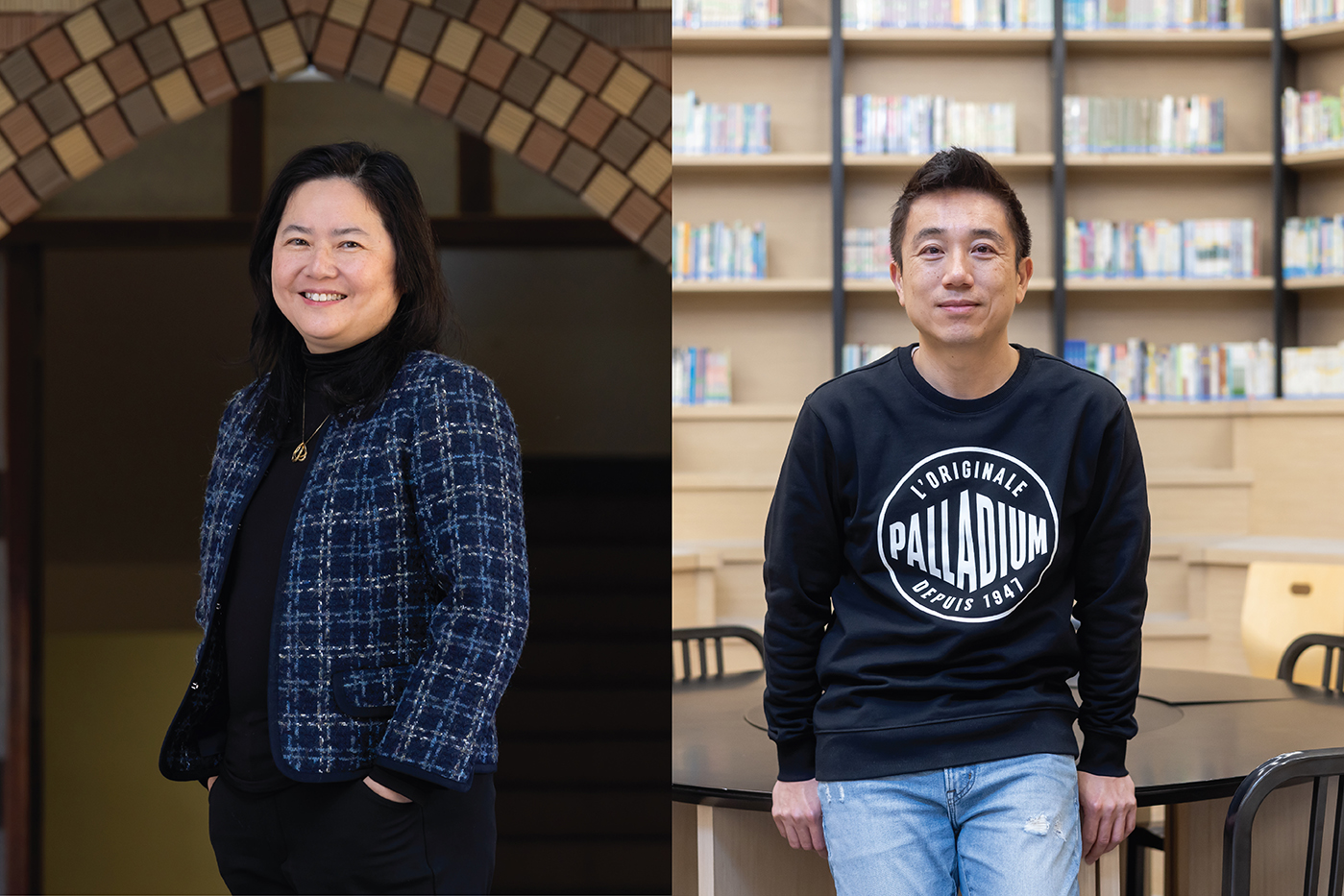
More
In a bustling auditorium at Hong Kong’s Pui Ching Middle School, students take turns performing dramatic scenes while their classmates eagerly offer feedback. This isn’t an after-school drama club – it’s part of the school’s formal arts curriculum, where students choose specialized tracks. Perhaps surprisingly, the drama instructor is the school’s Principal himself, Nick Ho.
Ho has made a name for himself in Hong Kong’s theater scene, with his inter-school musical Sing Out sweeping six awards at the Hong Kong Drama Awards. His eyes light up when discussing drama’s role in student development. “Communication graduates tend to think differently,” he reflects. “I started producing musicals purely out of personal interest, not because it was required. It just kept growing more exciting and ambitious. Having communication graduates in schools tends to bring a certain vibrancy to campus life.”
Another communication graduate at the helm of a prestigious institution is Chan Shin-kwan Meimei, Principal of Maryknoll Convent School (Secondary Section) in Kowloon City. In contrast to Ho’s dynamic classroom, we find Chan’s gentler presence, where her heartfelt dedication to young people is evident. During our photo session, she naturally engages with communication students, discussing her recent trip to educational organizations in the United States where student mental health was a key topic of discussion.
Before stepping into education, Chan worked as a journalist. While she cherishes those days for broadening her horizons, she notes a key difference – in journalism, your connections with interviewees are often fleeting. “Education offers something deeper – you can guide students through several formative years, often maintaining relationships long afterward. That lasting human connection is what drew me to education.”
As school leaders, principals guide their schools’ development direction, making decisions that affect all students. Ho acknowledges the inherent tension between arts programs and academic requirements, particularly given limited class hours. Yet he remains committed to providing diverse learning experiences. “In today’s world, where information is at our fingertips, helping students grow as individuals is paramount,” he emphasizes. “Teaching them to understand themselves, navigate the world, and develop strong values – that’s what truly matters.”
“Education isn’t just about conveying knowledge – it’s about transmitting culture and values,” Chan explains. “In journalism, every story we write carries viewpoints and values that influence others. Education works the same way.”
Profiles:
Chan Sin-kwan Meimei graduated from The Chinese University of Hong Kong’s School of Journalism and Communication in 1992, later earning master’s degrees in English Literature and Information Technology in Education. After 17 years of classroom teaching, she became a Principal in 2013 and currently leads Maryknoll Convent School (Secondary Section).
Nick Ho, a 1996 graduate of The Chinese University of Hong Kong’s School of Journalism and Communication, worked as both a secondary school teacher and television reporter before becoming Vice-Principal of Hong Kong Pui Ching Middle School in 2015. Since his promotion to Principal in 2018, he has produced acclaimed musicals including The Awakening and Sing Out, integrating theater into his vision for student development.
[The Courage to Stand by What’s Right]
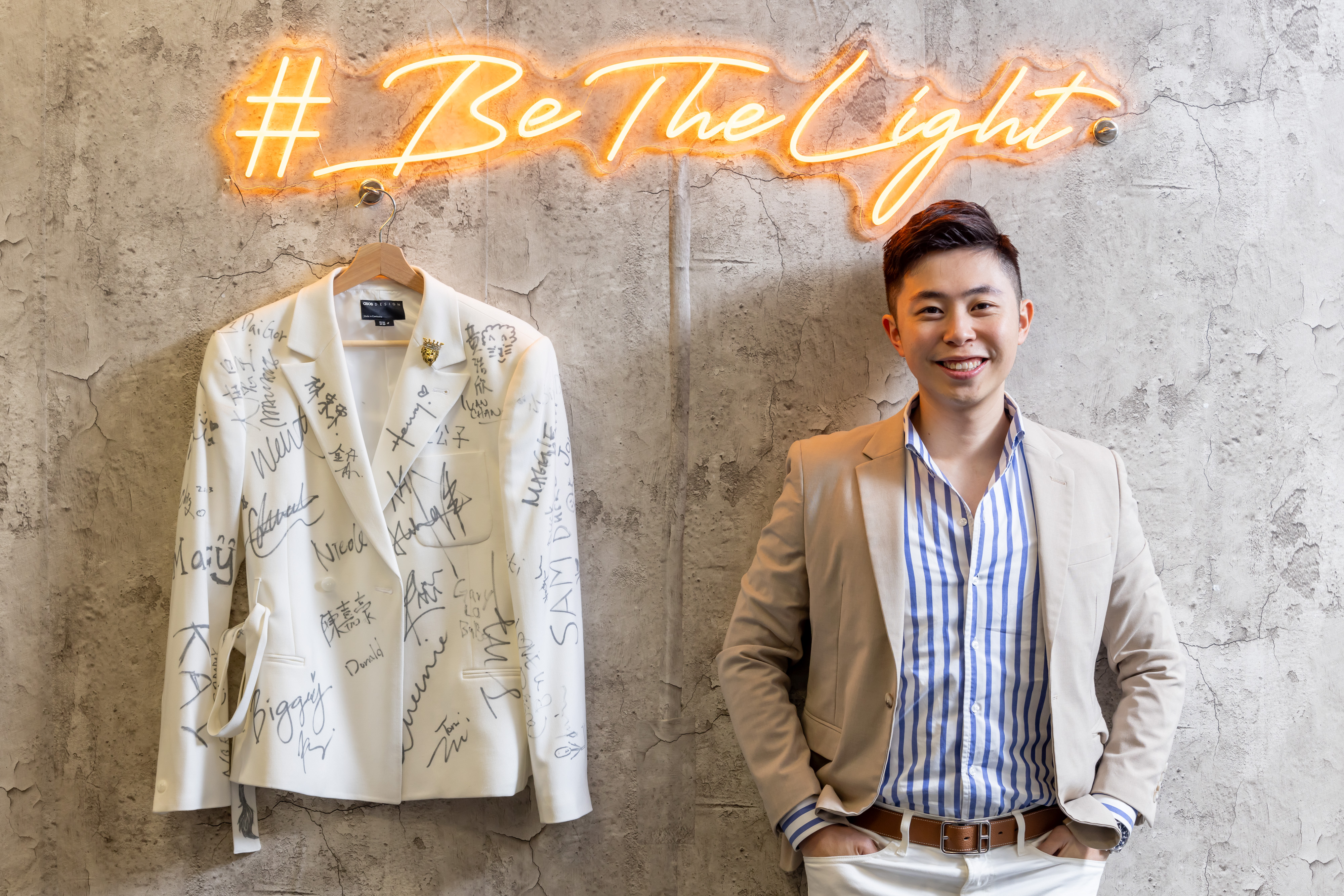
More
“Our plans miscarry because they have no aim. When a man does not know what harbor he is making for, no wind is the right wind.” It’s rare to find an insurance and financial planning booklet quoting Seneca, but that’s exactly what Nicholas Chan, Senior District Director at Manulife Hong Kong, did. This millennial rising star believes that the most valuable skill he gained in college was storytelling – an asset he’s found invaluable across different career paths.
After graduating from the School of Journalism and Communication, Chan took what seemed like a natural step into journalism, only to pivot to the insurance industry two years later. He’s candid about the switch, acknowledging it was driven by financial necessity, but he sees his journalism background as invaluable preparation. “Journalism teaches you to work at lightning speed, juggle multiple tasks, and handle the workload of three people single-handedly. When people ask how I manage such a demanding schedule now, I tell them that after being a journalist, everything else feels manageable – it was the ultimate boot camp.”
A self-proclaimed anime enthusiast, Chan’s office walls are adorned with One Piece posters and inspirational quotes, reflecting his passionate approach to life. His own story is equally compelling: at a remarkably young age, he’s already risen to a senior position leading a team of over a hundred people. The journey wasn’t always smooth sailing – when he first made the switch to insurance, he relied heavily on his journalism skills to win over senior management and establish himself in the industry. His journalism training honed his storytelling skills, equipping him with everything from practical abilities like video production, publishing and social media management to broader skills like personal branding. “Many people find financial planning intimidating and complex,” he explains. “My journalism training taught me how to break down complicated concepts and add a human touch to technical subjects.”
Chan finds deep satisfaction in applying his journalism education to his current role. One of the most important lessons he carried forward was the principle of standing firm in doing what’s right: “In a world full of compromises, it takes real courage to choose integrity and kindness when faced with temptation and profit.”
“Our professors always emphasized the weight our words carried, whether written or spoken,” he reflects. “I tell my team the same thing now. Since most people have limited knowledge of insurance, your words shape their understanding of truth – similar to how people trust a journalist’s reporting. I believe there are three professions where genuine dedication makes all the difference: journalism, teaching, and insurance consulting.”
Profile:
Nicholas Chan graduated from the School of Journalism and Communication at The Chinese University of Hong Kong in 2016 and currently serves as Senior District Director at Manulife Hong Kong.
[A Heart for Serving Society]
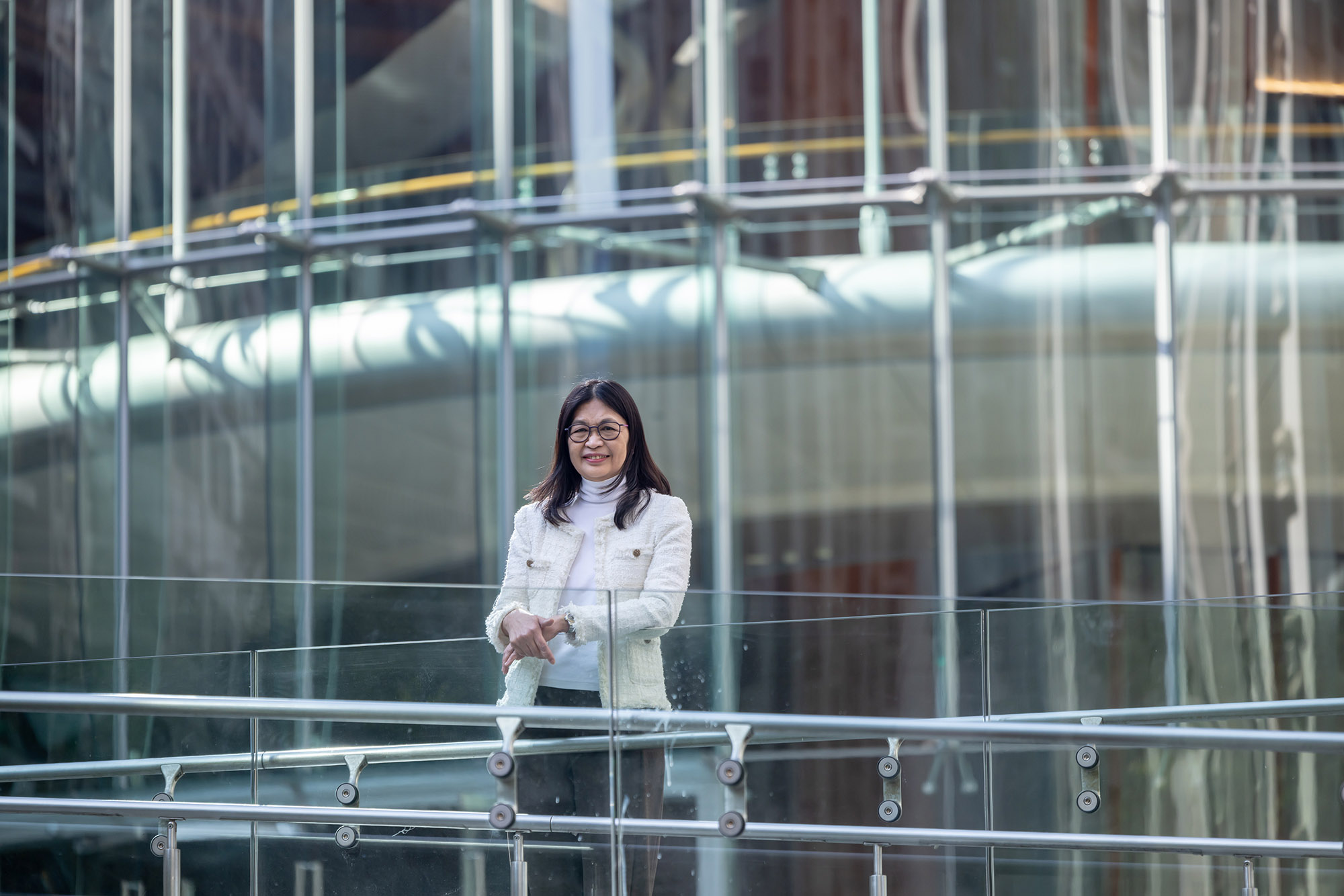
More
When people think of journalism and communication graduates, many assume they’re destined for careers in media. However, the field’s interdisciplinary nature opens doors across various sectors, as exemplified by Julia Leung Fung-yee, the Chief Executive Officer (CEO) of the Securities and Futures Commission (SFC).
For Leung, journalists’ commitment to truth-seeking initially drew her to the field. “Journalism is fundamentally about reporting objective facts and truth, which shapes how readers understand both events and society,” she explains. “While every discipline aims to improve society, education is ultimately about learning life principles. Journalism and communications stay particularly attuned to society’s pulse, helping to mirror its current state of affairs.”
After completing her degree, Leung spent a decade as a reporter for The Asian Wall Street Journal before transitioning to positions at the Hong Kong Monetary Authority, Financial Services and the Treasury Bureau, and the SFC. Despite appearing to be a career shift, she sees it differently. “My journalism education instilled in me a desire to serve society. I’ve always wanted to contribute to public service, and when I moved into finance, helping to foster a healthier, more orderly market was another way to serve the public good.”
Her journalism training has proved invaluable, Leung notes. First is the pursuit of truth and objectivity: “Journalism teaches you to think laterally, to examine issues from multiple angles, to connect the dots, and to transform two-dimensional perspectives into multi-dimensional understanding.” Second, journalistic writing emphasizes clarity and accessibility, expressing abstract concepts in simple and clear ways. “This skill has been essential throughout my career. Even now, when reviewing internal research reports or regulatory circulars for public release, I expect complex policies to be distilled into clear, comprehensible language.”
Her journalism training and reporting experience taught her the value of humility. “I’ve worked at various organizations, often in unfamiliar territory. I needed to learn humbly and rely on my team members while also leading them. Listening therefore becomes crucial.” She adds with a smile, “After all, I’ve been listening to interviewees since my days as a journalist.”
Profile:
Julia Leung Fung-yee earned her Bachelor’s degree in Journalism and Communication from The Chinese University of Hong Kong in 1982. After a decade as a reporter at The Asian Wall Street Journal, she joined the Hong Kong Monetary Authority in 1994, rising to Executive Director in 2000. She served as Under Secretary for Financial Services and the Treasury Bureau from 2008 to 2013, receiving the Silver Bauhinia Star in 2012. Joining the SFC as Executive Director in 2015, Leung became Deputy CEO in 2018 and assumed the role of CEO in 2023.
Media Veterans
[From Rookies to Leaders: Three Hong Kong Media Veterans Reflect on Their Journalistic Roots]
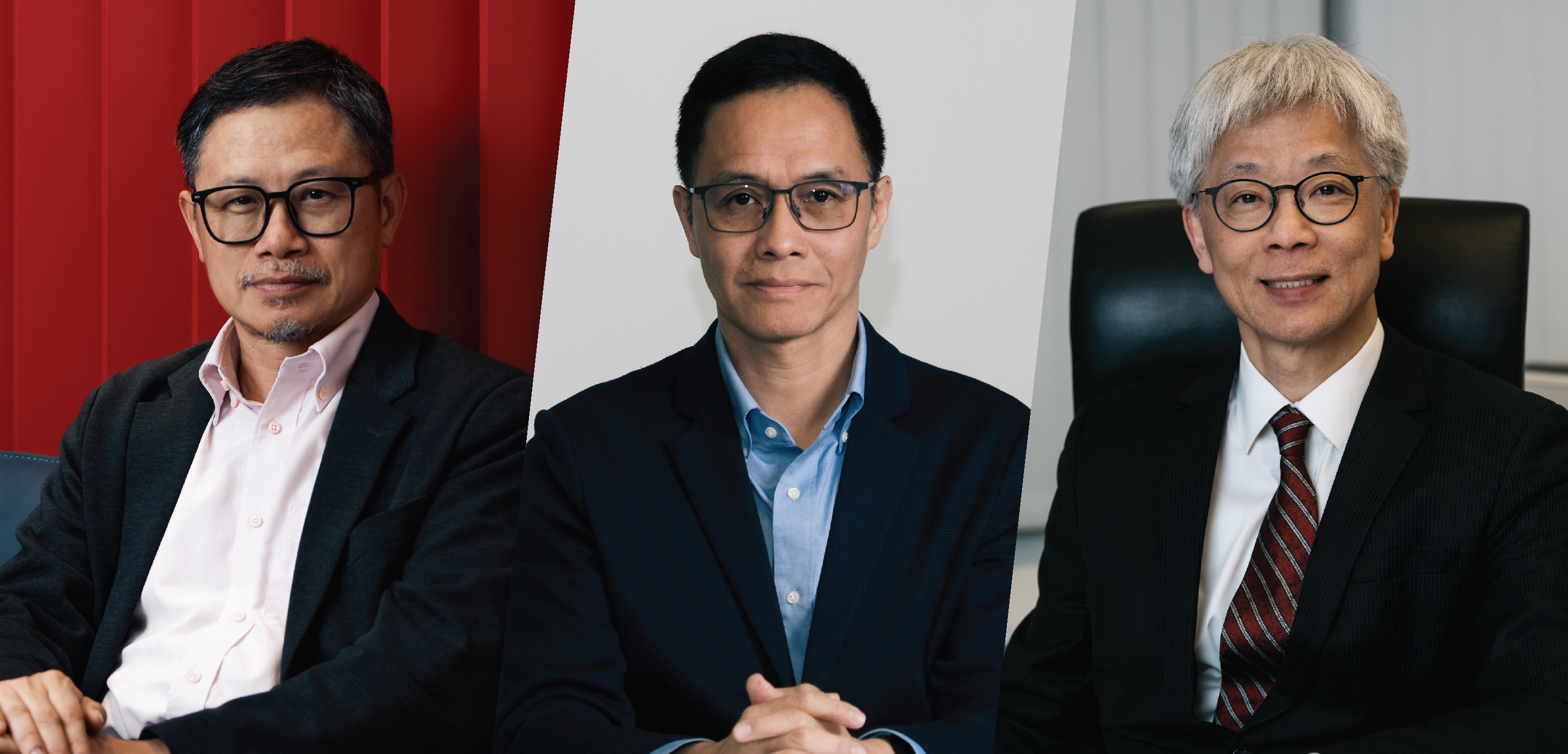
More
Three journalism graduates from the 1980s have built enduring careers in the media industry that span four decades. Lo Wing-hung, Siu Sai-wo, and Lo Kok-lun have all risen from entry-level reporters to executive positions, but they each remember what it was like to be newcomers. How did they first learn the craft of journalism?
For aspiring journalists, internships represent a pivotal stepping stone. Lo Wing-hung, now President of Bastille Post, remembers a defining moment during his undergraduate newspaper internship. An editor tasked him with interviewing Michael Sandberg, then Chairman of both the Hong Kong Association of Banks and HSBC, but provided no contact information—only suggesting he try the company switchboard. Though he “didn’t expect to reach him,” Lo made the call anyway. To his surprise, he was connected directly and secured an interview that became an exclusive front-page story for four consecutive days. While he can’t pinpoint exactly why he succeeded, the experience taught him a lasting lesson: “Never assume something is impossible. In journalism, you need to expand your imagination and be willing to try different approaches.”
For Lo Kok-lun, now Publisher of AM730, a university newspaper internship ignited his passion for journalism. “Reporting, covering breaking news, and attending press conferences offered thrilling experiences for a university student,” he recalls. “Witnessing events unfold firsthand and hearing directly from officials and experts provided invaluable perspective.”
Siu Sai-wo, currently TVB’s General Manager of Business Operations, still speaks enthusiastically about his reporting days. As a rookie journalist, he once covered a shareholders’ meeting where he witnessed the dramatic ousting of a chairman. Though initially bewildered, the theatrical nature of the event captivated him. As his career progressed, he developed a deeper appreciation for journalism’s role: “In university, professors described media as the fourth estate alongside the executive, legislative, and judicial branches. Working in the field, I discovered firsthand how media truly does serve as a watchdog for society.”
Despite the industry’s evolution over time, all three veterans remain committed to the fundamental principles they learned during their university years. Lo Kok-lun believes traditional media maintains its relevance even in the age of social media: “Traditional outlets still publish only after rigorous fact-checking, which inherently creates greater credibility.” He adds, “Technical skills and knowledge can be acquired anytime, but the commitment to truth-seeking is cultivated in journalism school—that’s what drives the pursuit of factual accuracy.”
Lo Wing-hung reflects on his academic foundation. “Our professors emphasized that journalism demands objectivity and fairness. As reporters, our job is to uncover and present competing viewpoints before offering our own perspective.”
For Siu Sai-wo, the principles of truthfulness and fairness he learned as an undergraduate transcend mere professional guidelines. “Journalistic standards and values extend far beyond an academic discipline—they represent core values for society itself.”
Profiles:
Lo Wing-hung graduated from The Chinese University of Hong Kong with a Bachelor’s degree in Journalism and Communication in 1985. He became Executive Director of Sing Tao News Corporation Limited in 2002 and served as the Group’s CEO from 2005 to 2013. Since 2013, he has been President of Bastille Post.
Siu Sai-wo graduated from The Chinese University of Hong Kong with a Bachelor’s degree in Journalism and Communication in 1985. He served as Executive Director and CEO of Sing Tao Group Limited in 2013 before joining Television Broadcasts Limited as General Manager (Business Operations) in 2021.
Lo Kok-lun graduated from The Chinese University of Hong Kong with a Bachelor’s degree in Journalism and Communication in 1986. He became Chief Editor of Hong Kong’s Metro Daily in 2002 and currently serves as Executive Director and Publisher of AM730.
